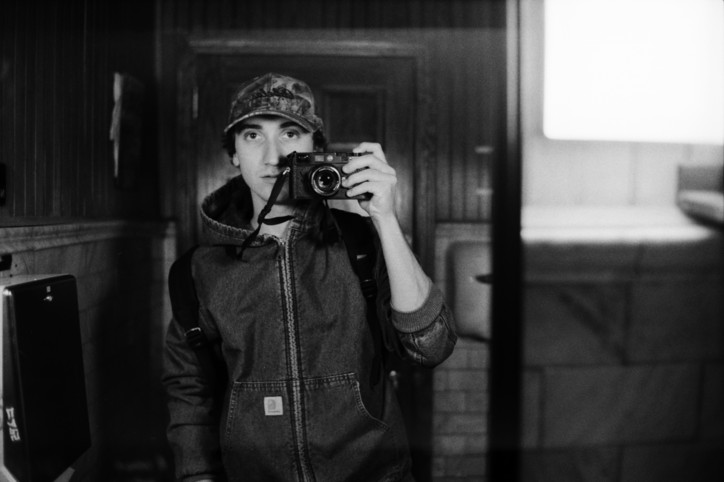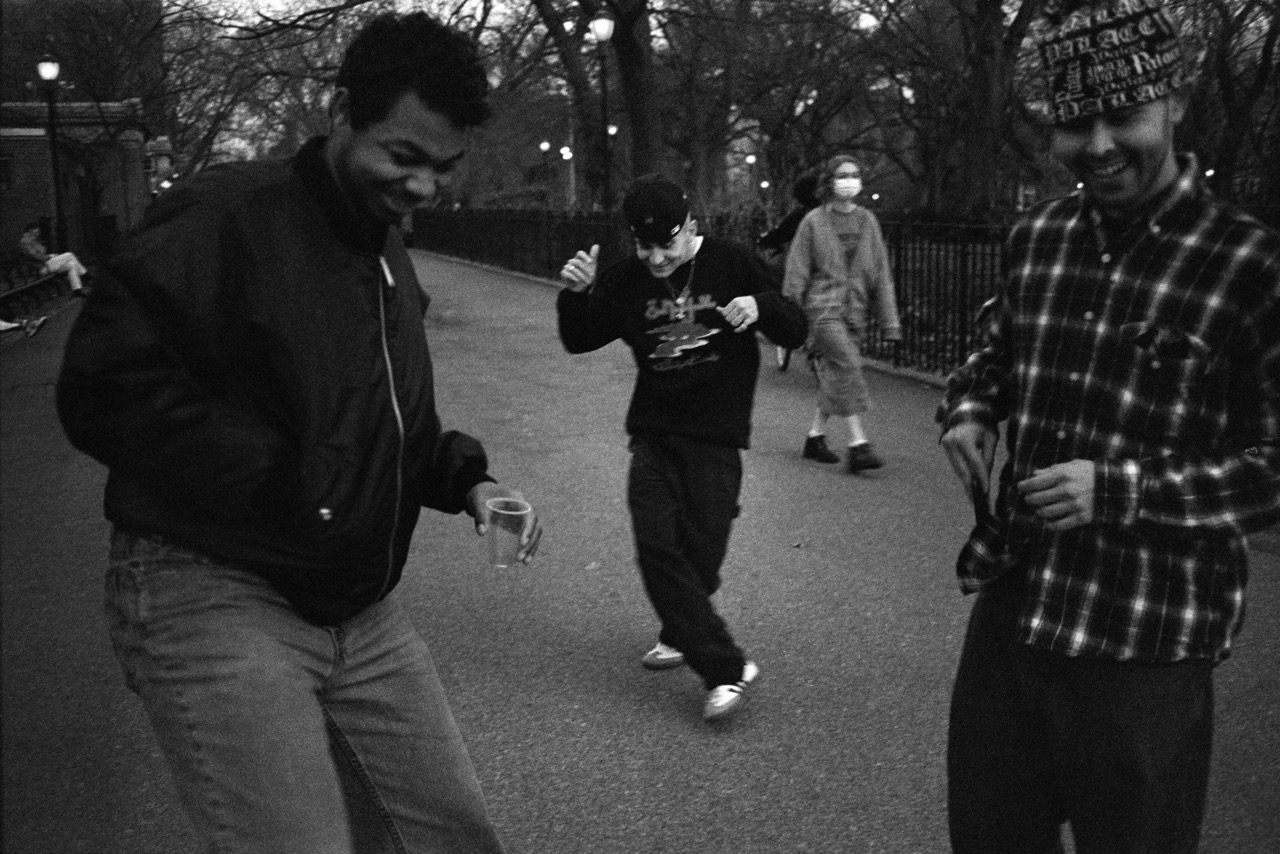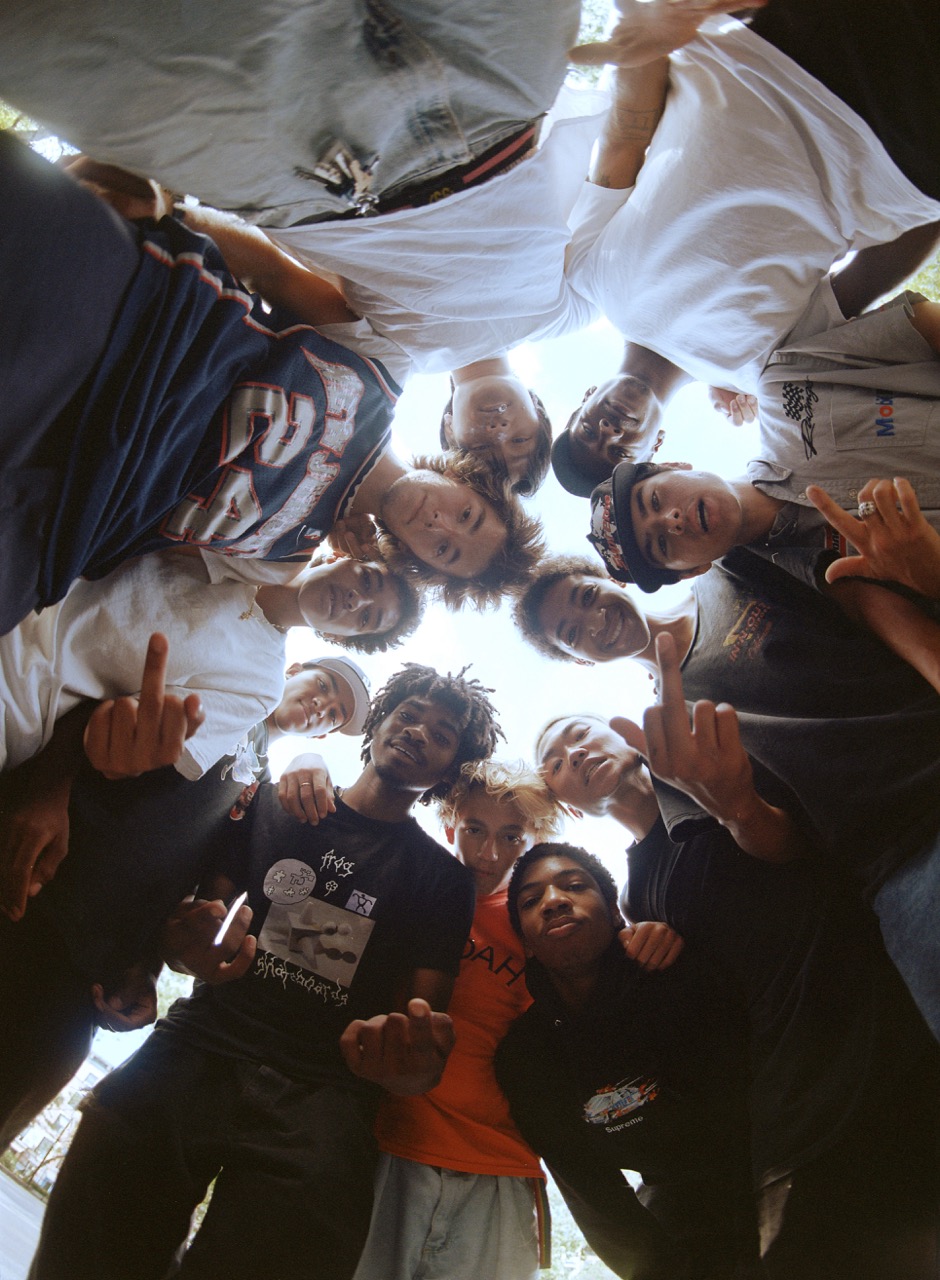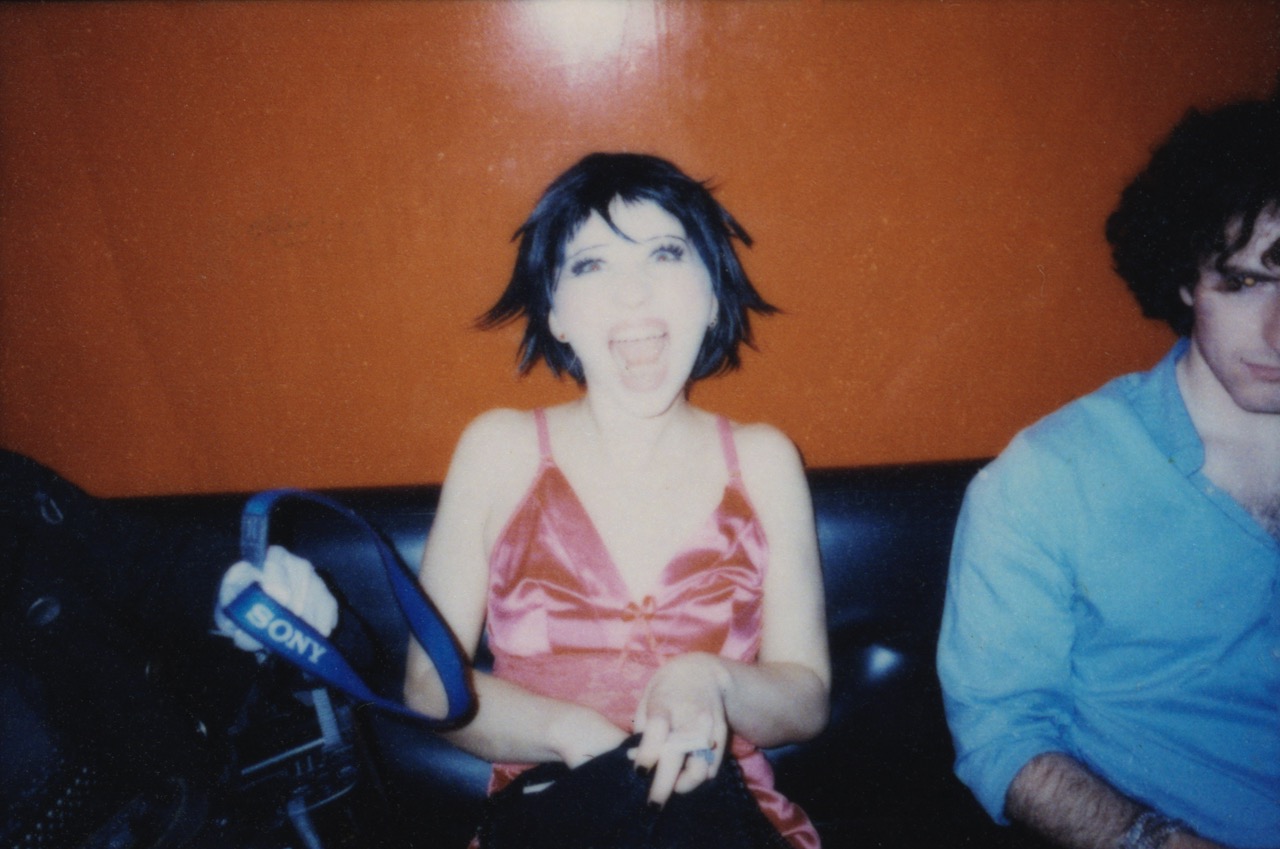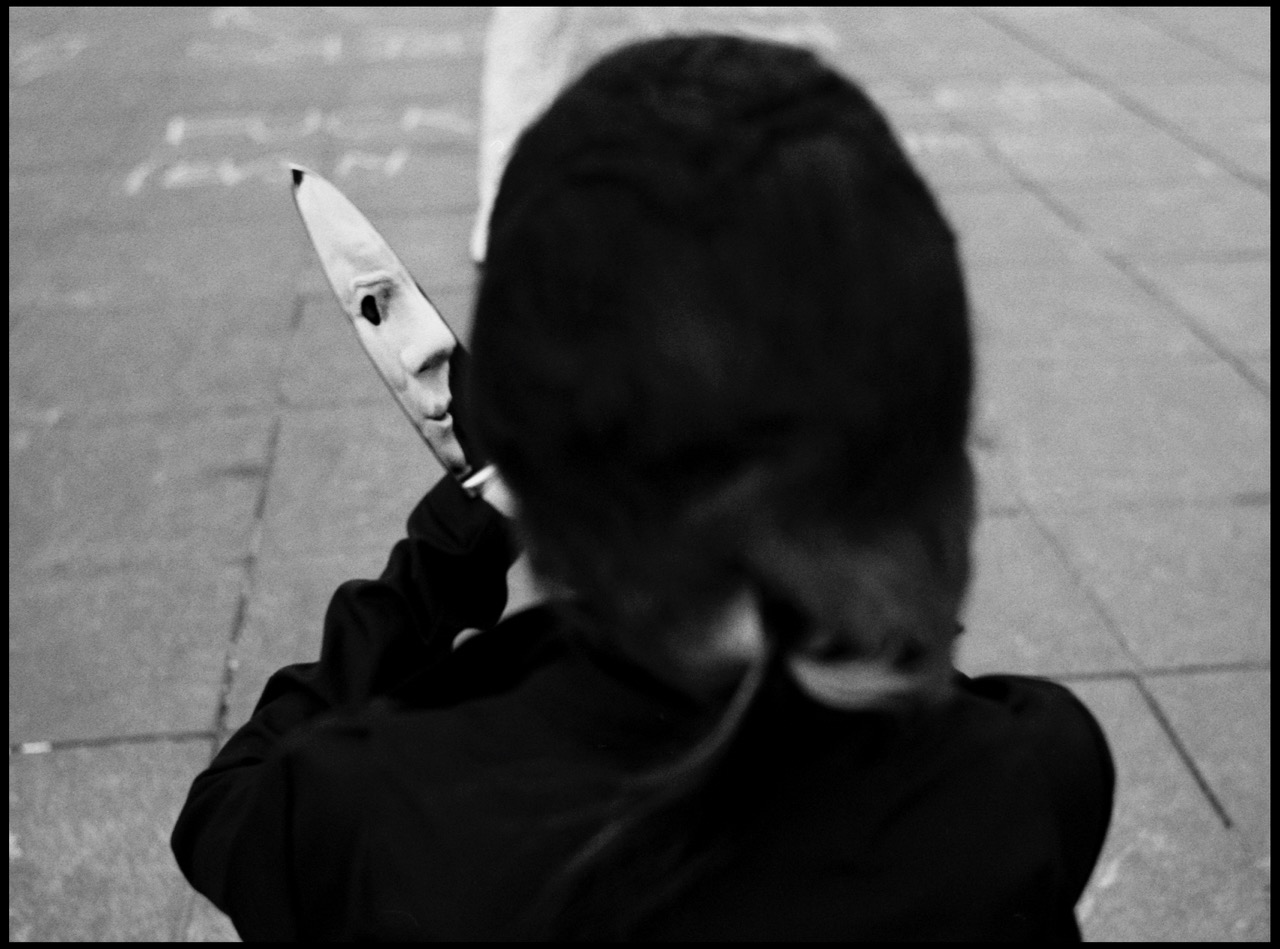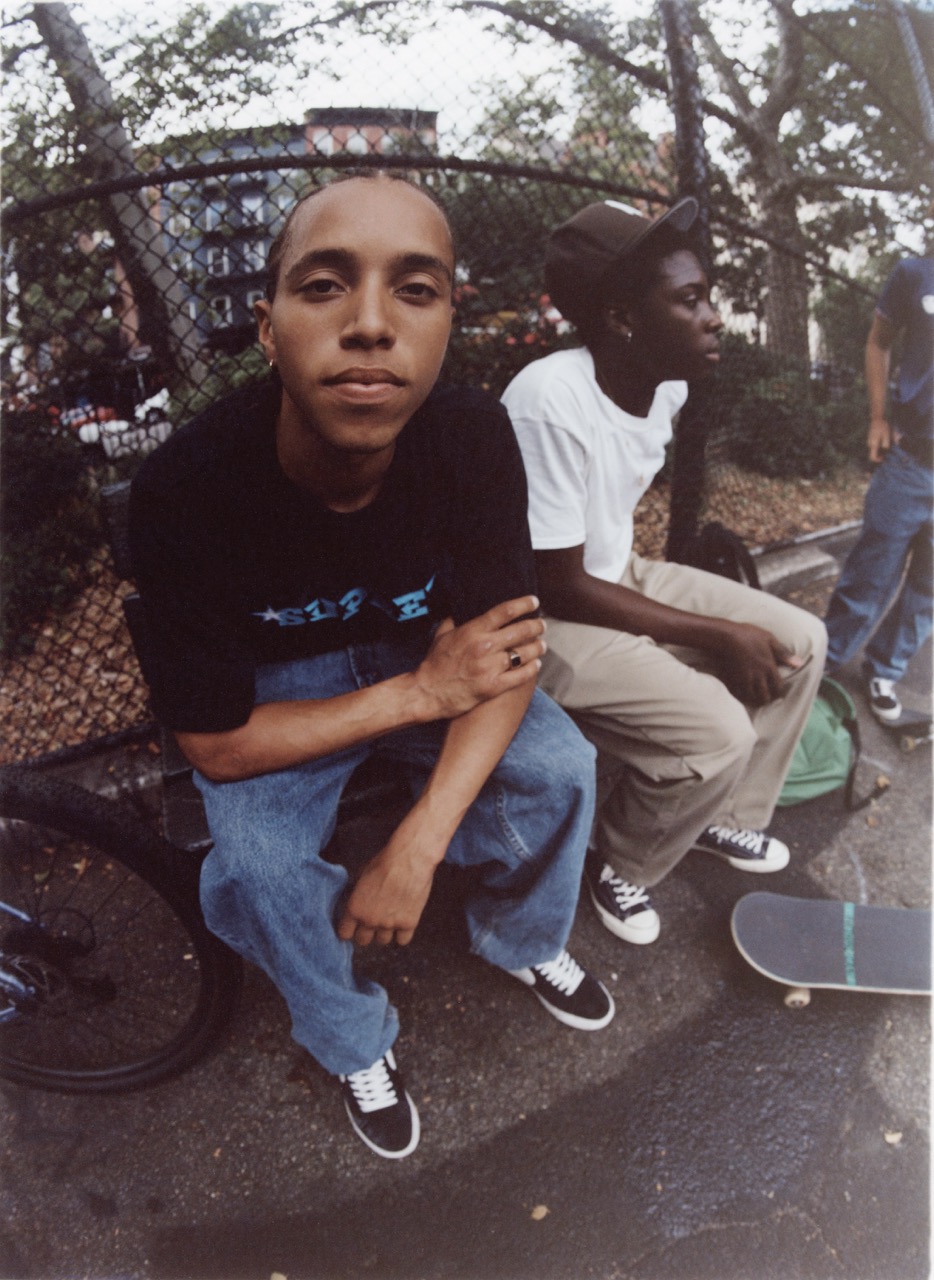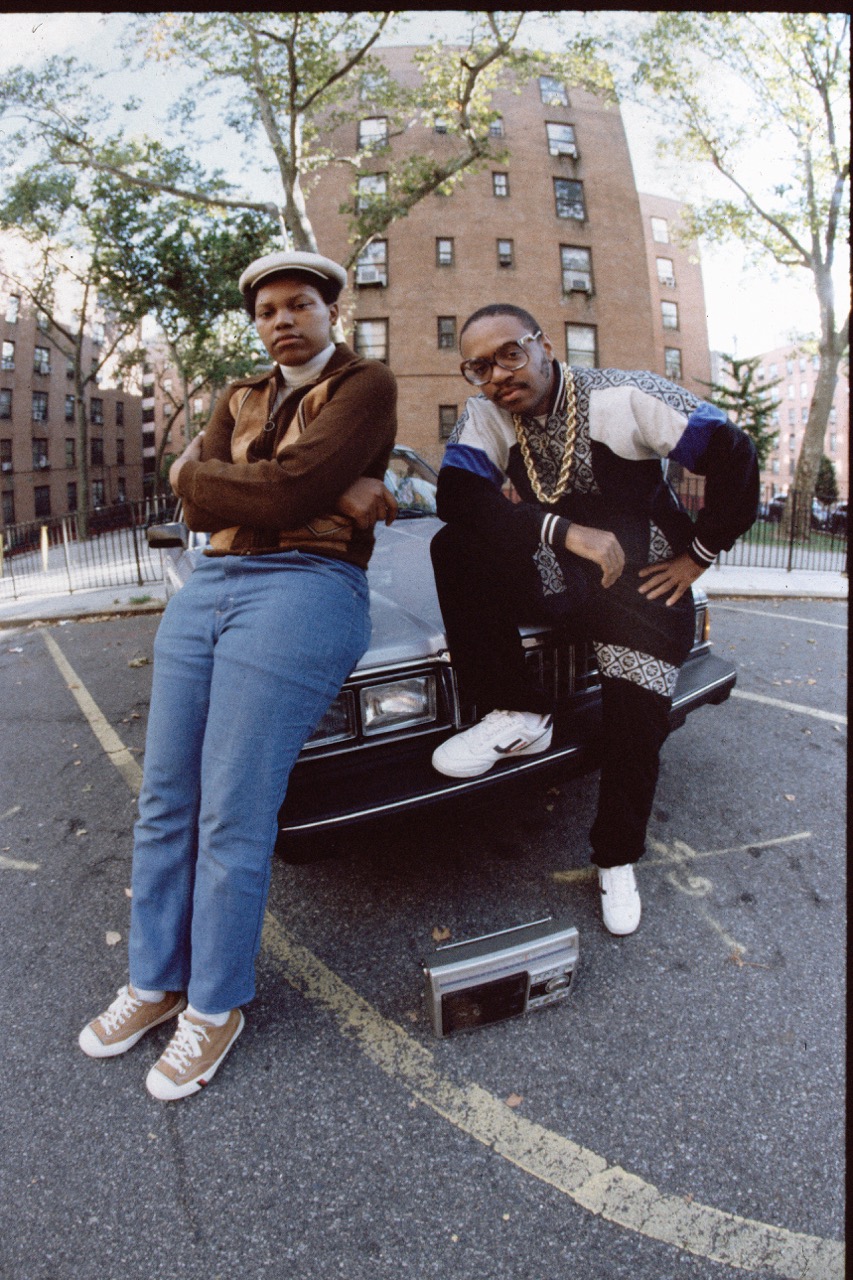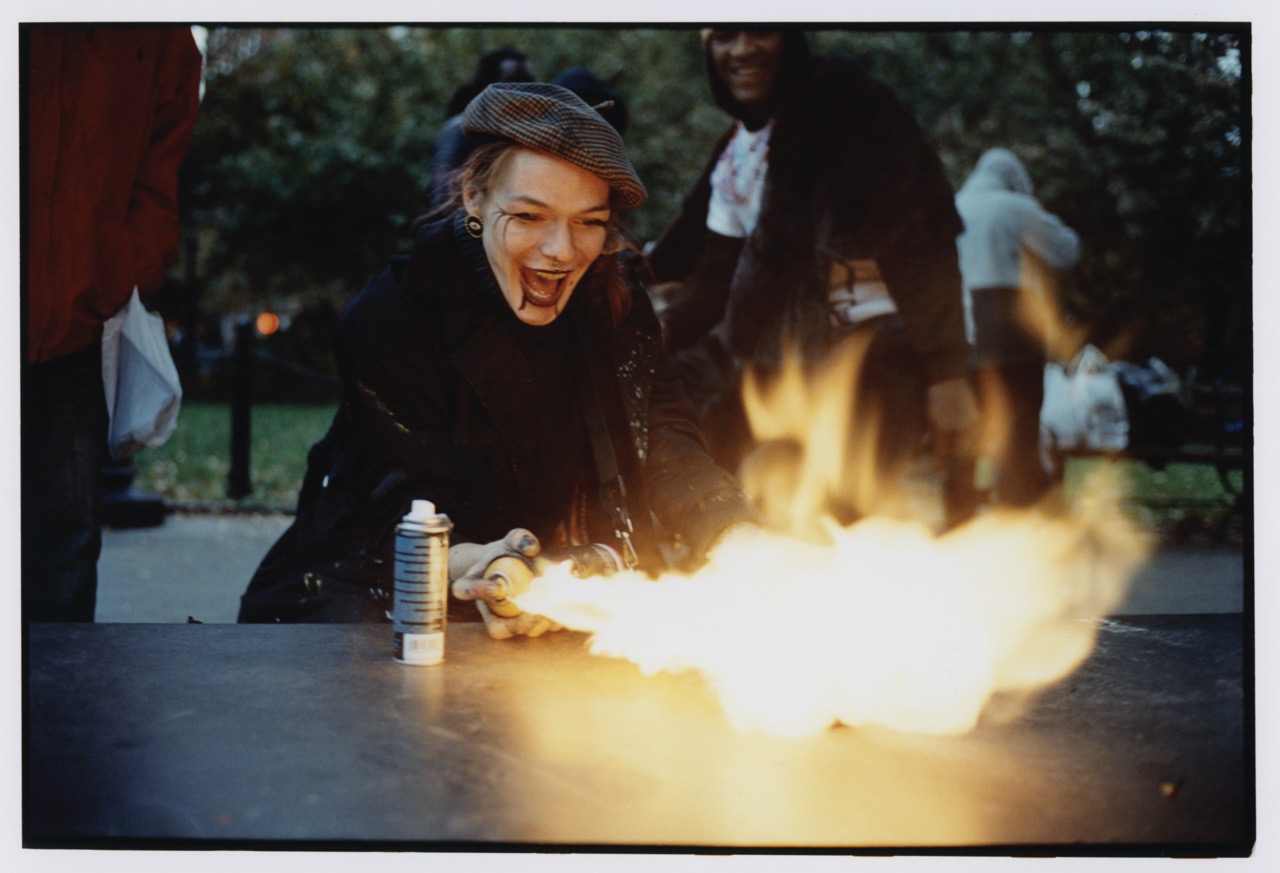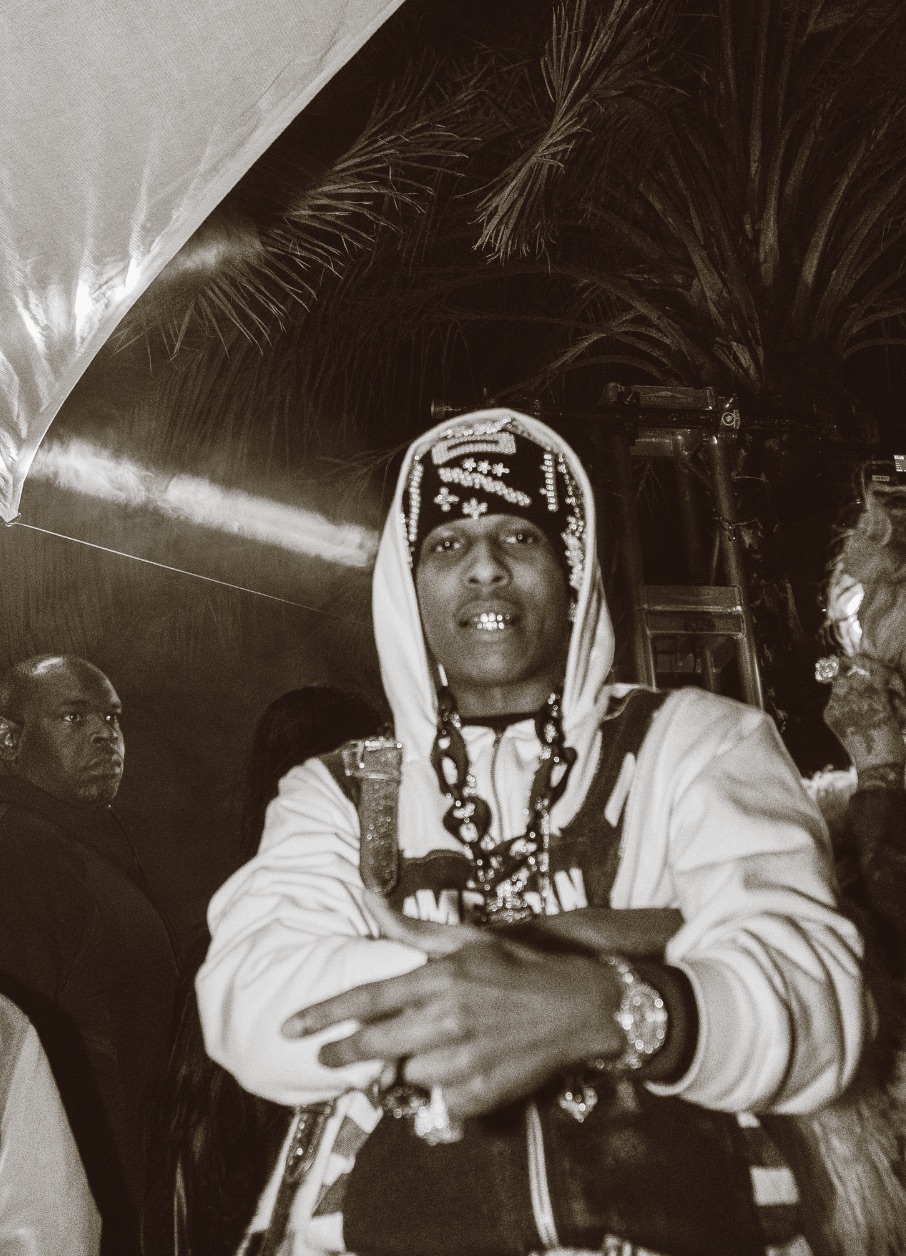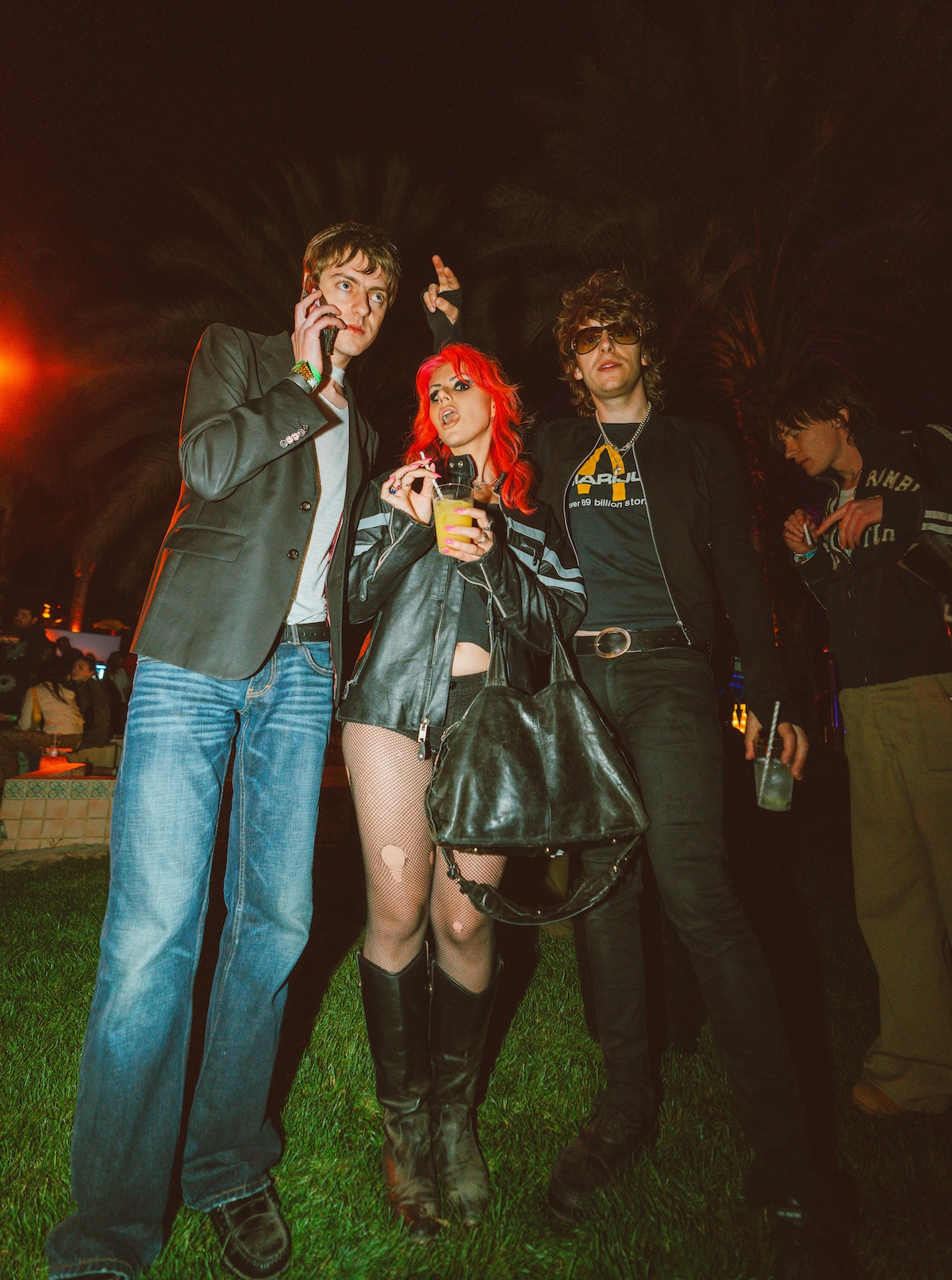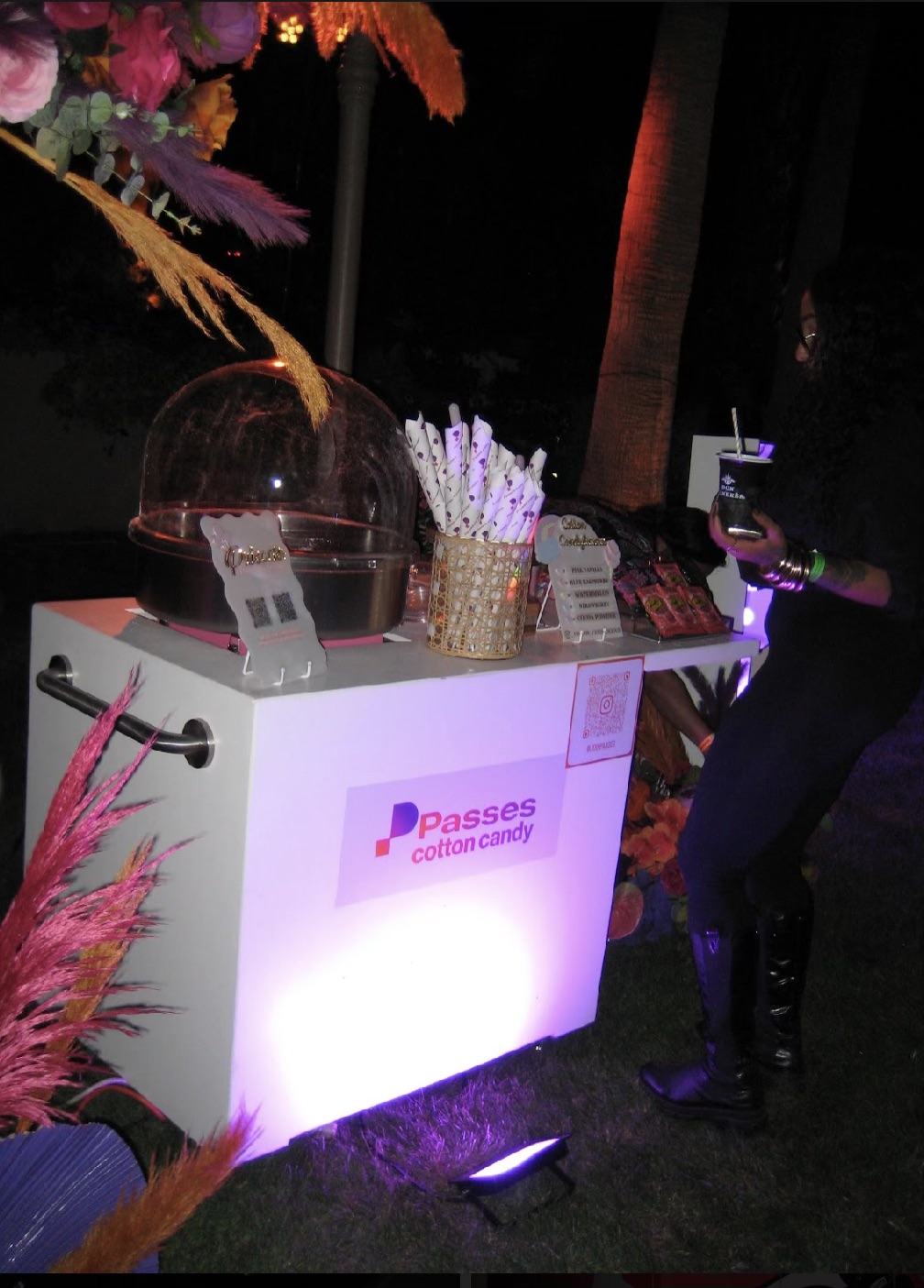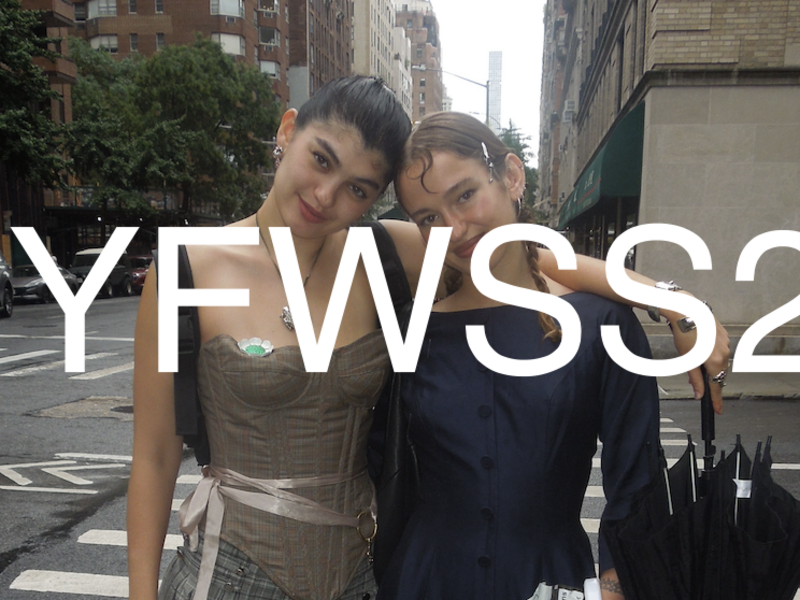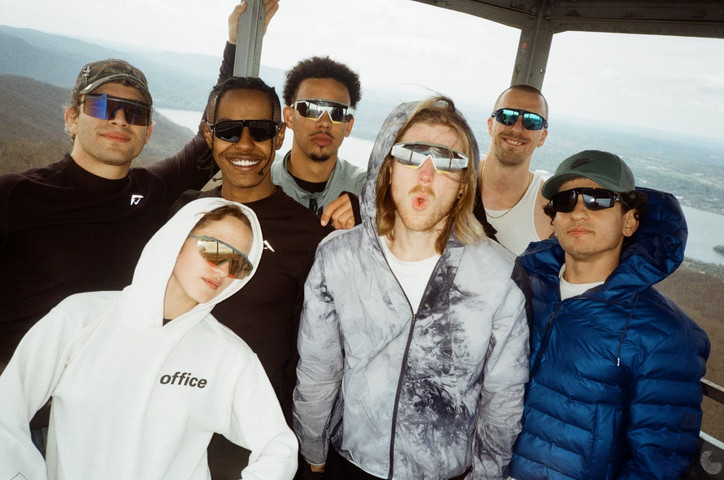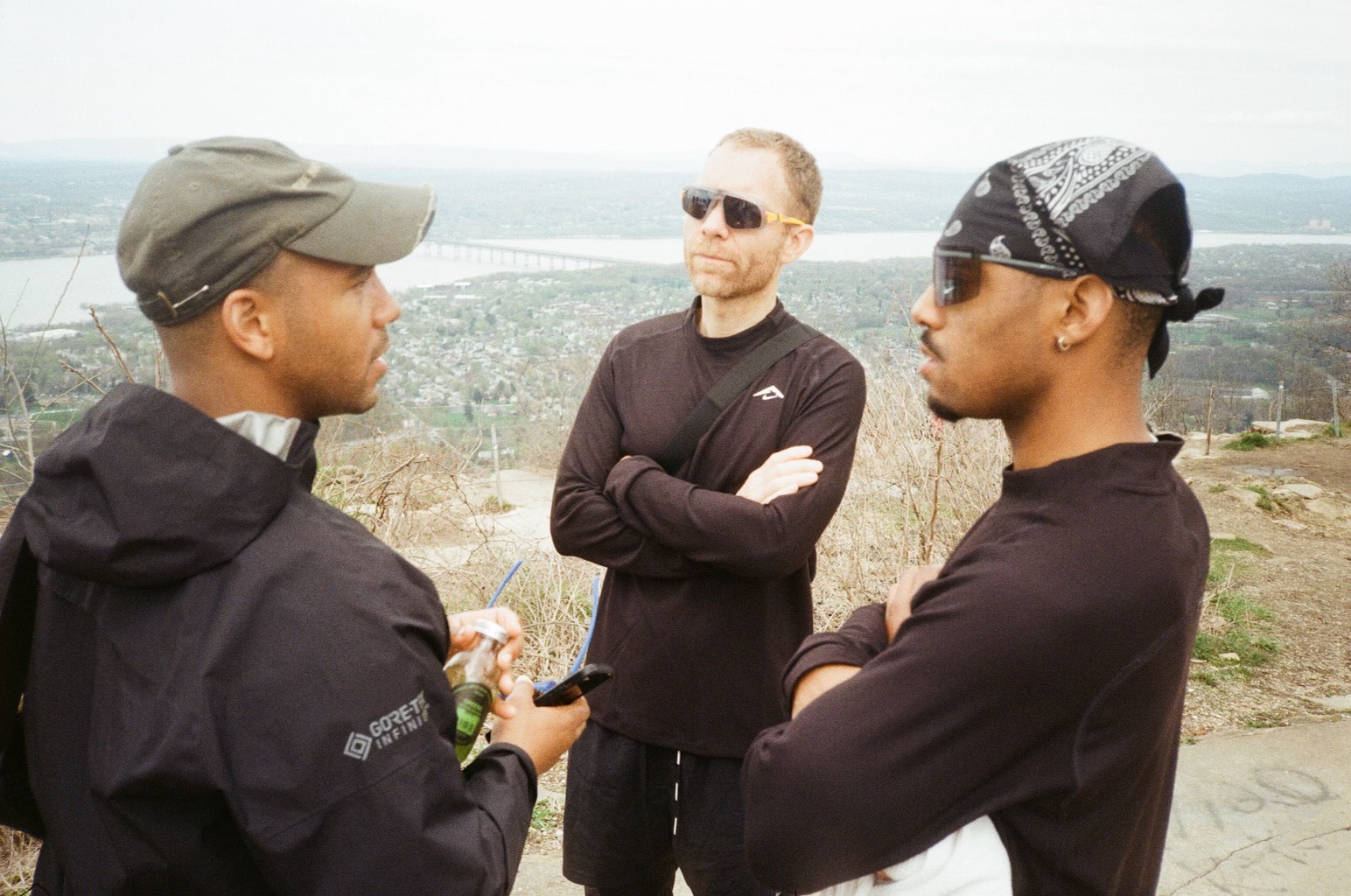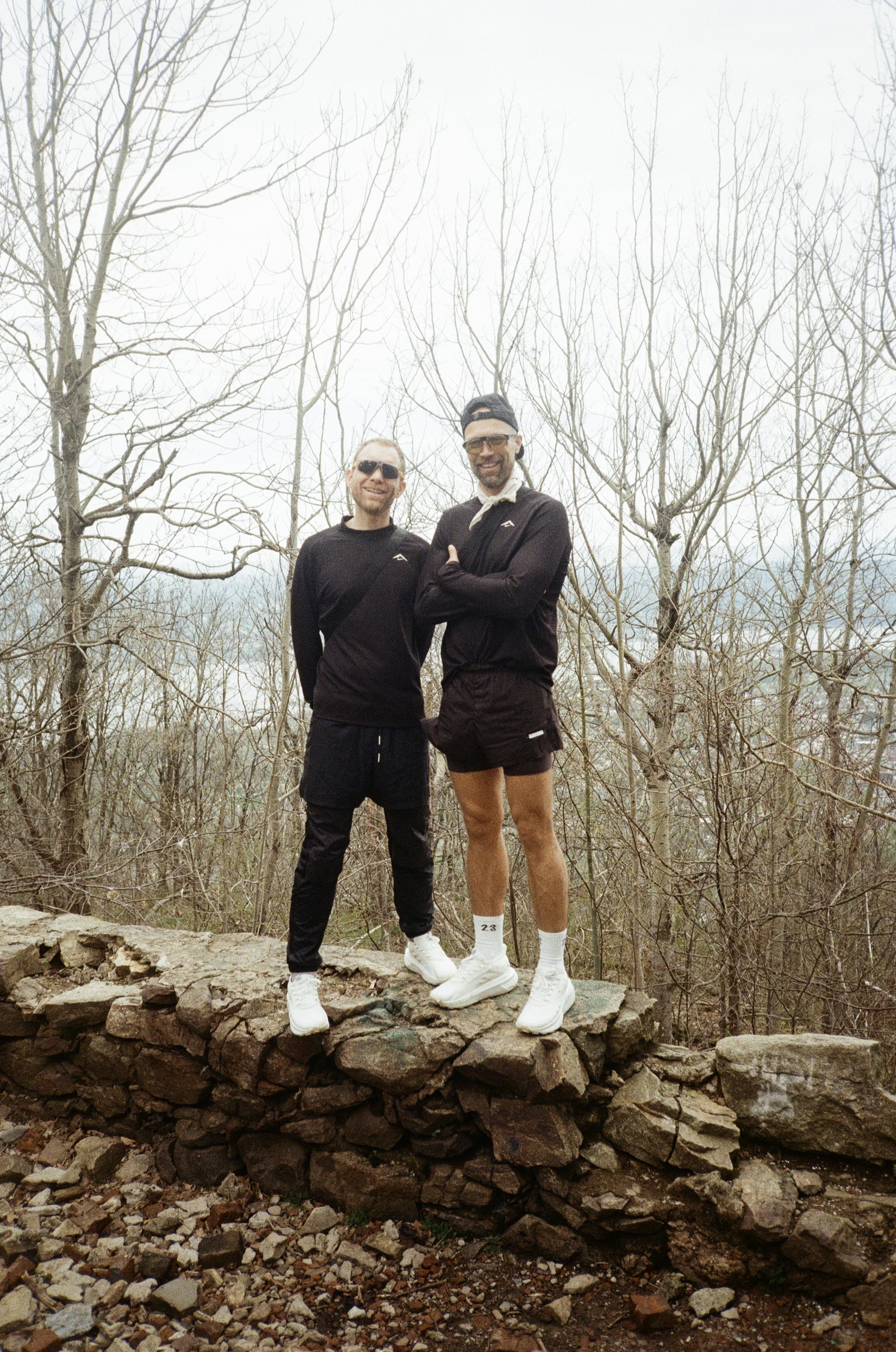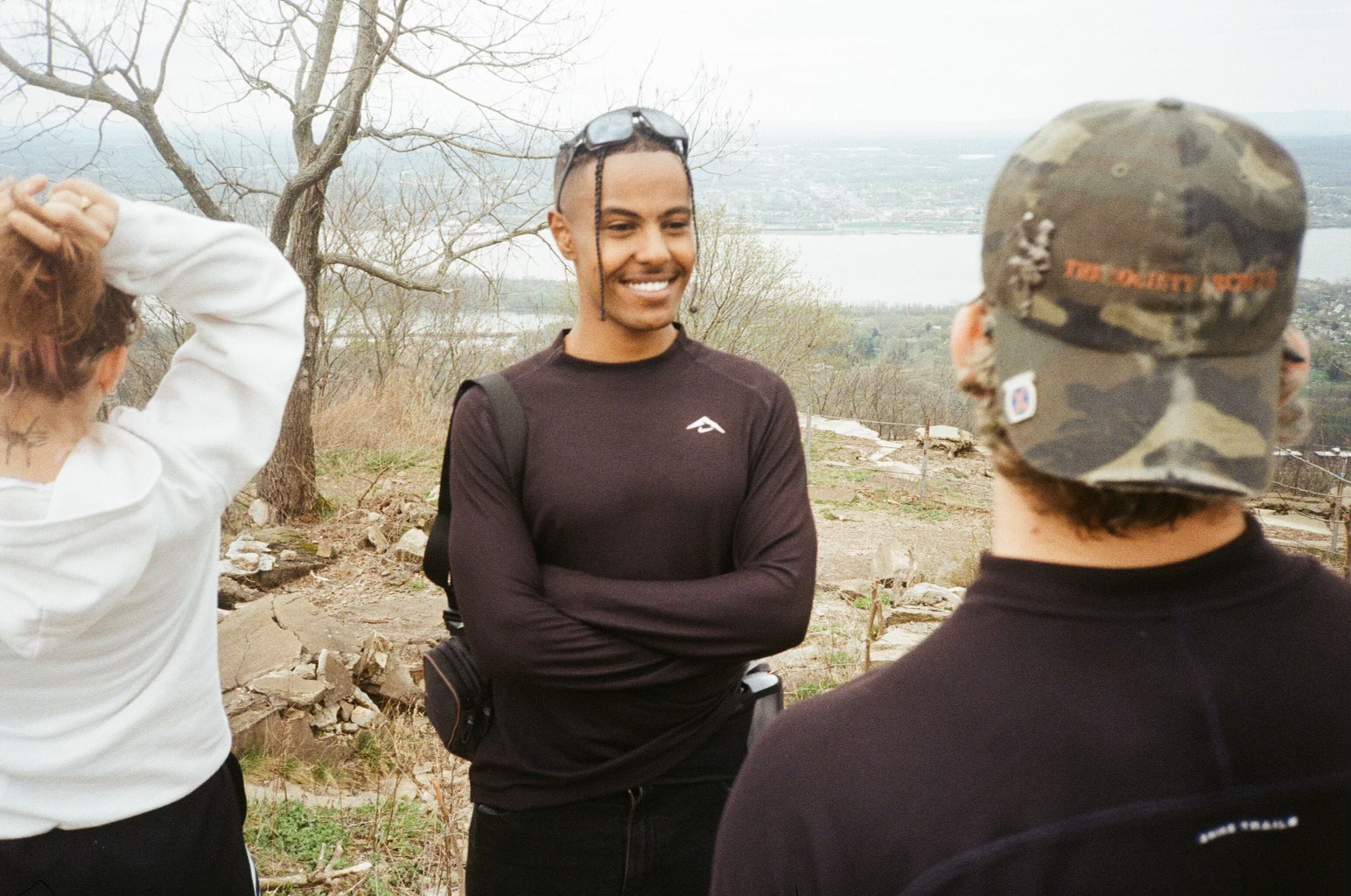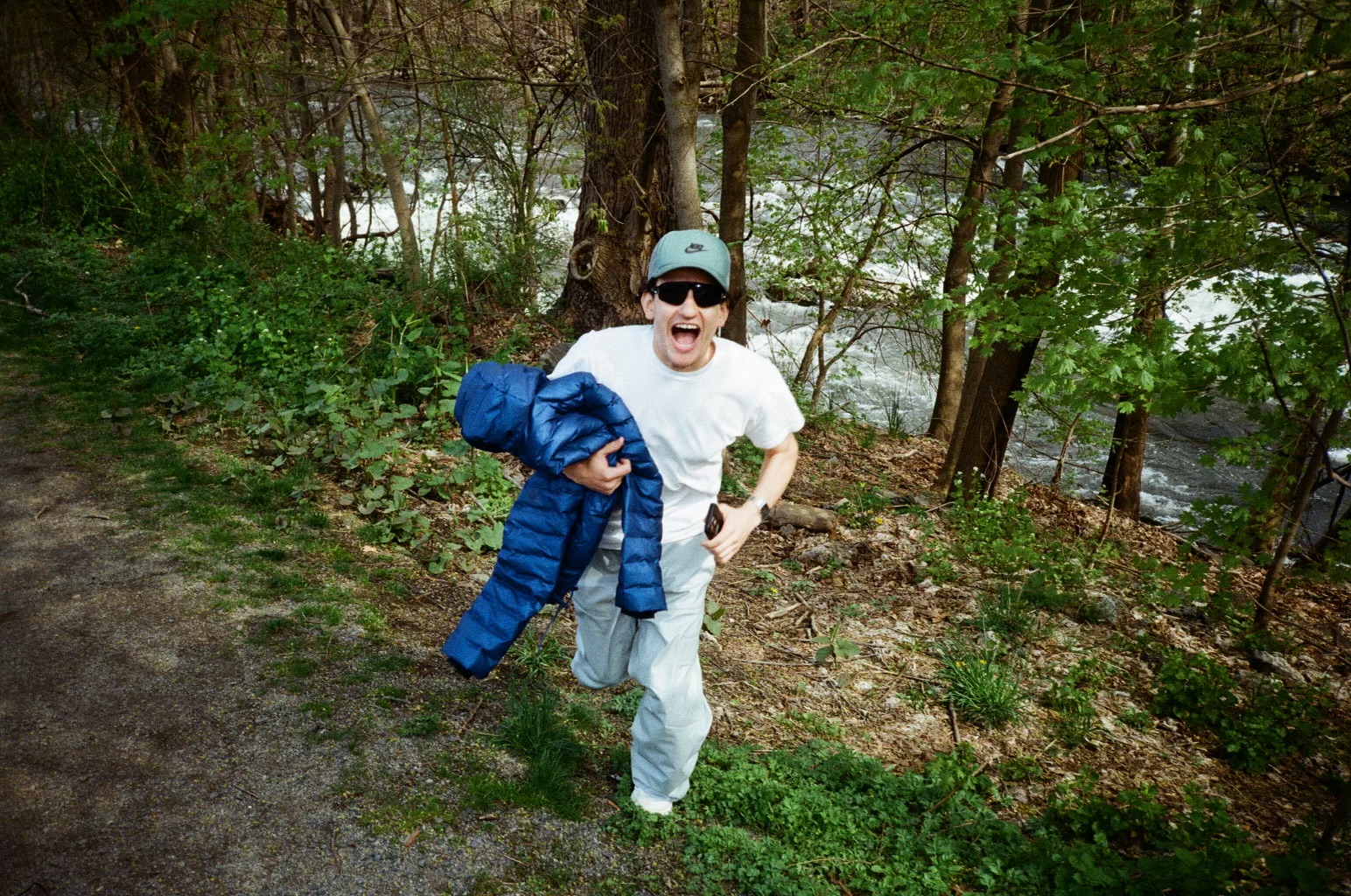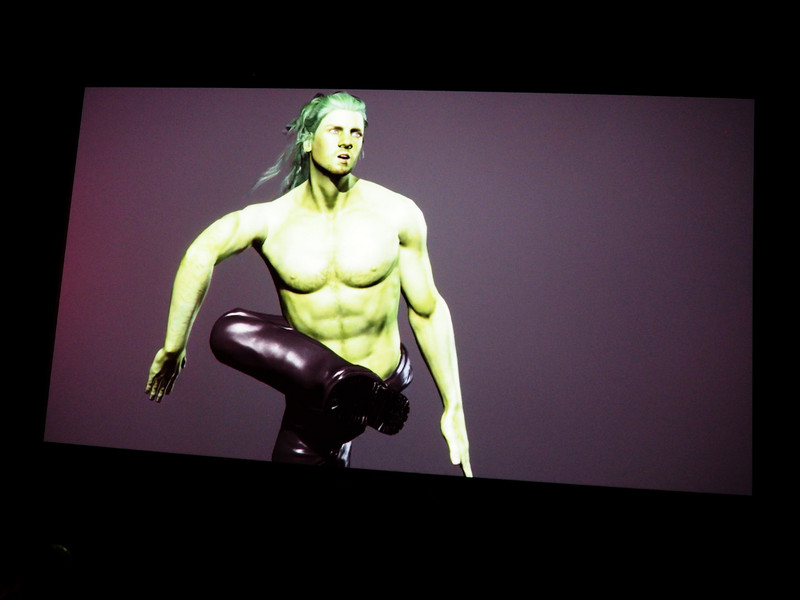I Want To Believe
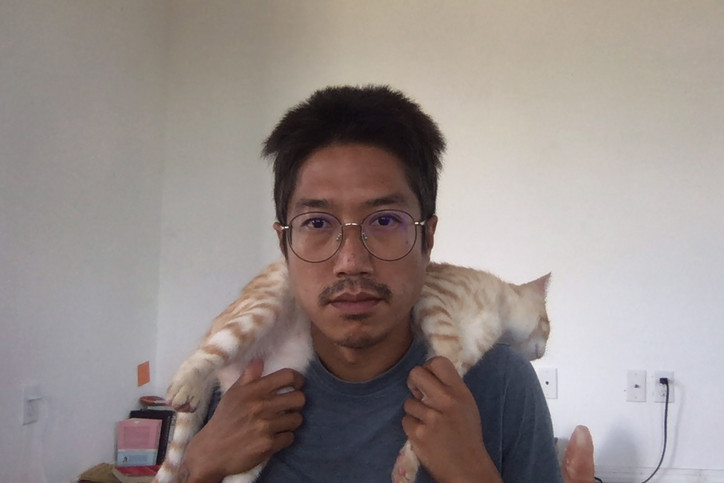
- Photos provided by Tao Lin and Brad Phillips
Brad Phillips is an observant, creative, open-minded, generous, reclusive man who thinks I’m funny. I enjoy making Brad laugh in Twitter and Instagram messages. I also find Brad funny. Thank you, Brad. A disclaimer for our conversation: I tell Brad I have no physical friends, but I forgot to mention my wonderful partner, Yuka, whom I live with. She and our three cats are my only physical friends, currently. —TAO LIN
Tao Lin made me believe in Bigfoot. He and I were introduced to each other as equivalently isolated people. Tao doesn’t like, but reminds me of, Andy Warhol. He makes me laugh out loud in my apartment. Tao remembers things about my life, asks me questions, is generous and cheerful, polite and encouraging. I read and praised Tao’s new book, and continue to praise it. —BRAD PHILLIPS
TAO LIN—Are you recording?
BRAD PHILLIPS—No, it wouldn’t let me record it. Wait. It just keeps me like, stuck in this thing and then nothing opens.
TAO LIN—I allowed you to record, so you should be able to record now. It’s just better for both of us to record in case—
BRAD PHILLIPS—I know. I just am stuck. I think maybe because I have a MacBook Air there’s not enough space, because that happens a lot. I can’t even download a movie anymore.
TAO LIN—Hmm. Yeah. I also have a MacBook Air, but I probably have more space.
BRAD PHILLIPS—I just get stuck in this page where it says ‘Open,’ but it won’t let me open anything. Maybe it’s recording right now!
TAO LIN—Yeah. At the bottom, do you see like, ‘Share screen?’
BRAD PHILLIPS—Yeah, let me try again. Record—I’ll tell you what, do you want me to narrate what happens? I pressed record then it goes to Settings and it says, ‘Store my recordings at user/Brad Phillips/document/ zoom.’ Then there’s just an Open button next to it, and when I press Open, it takes me to another
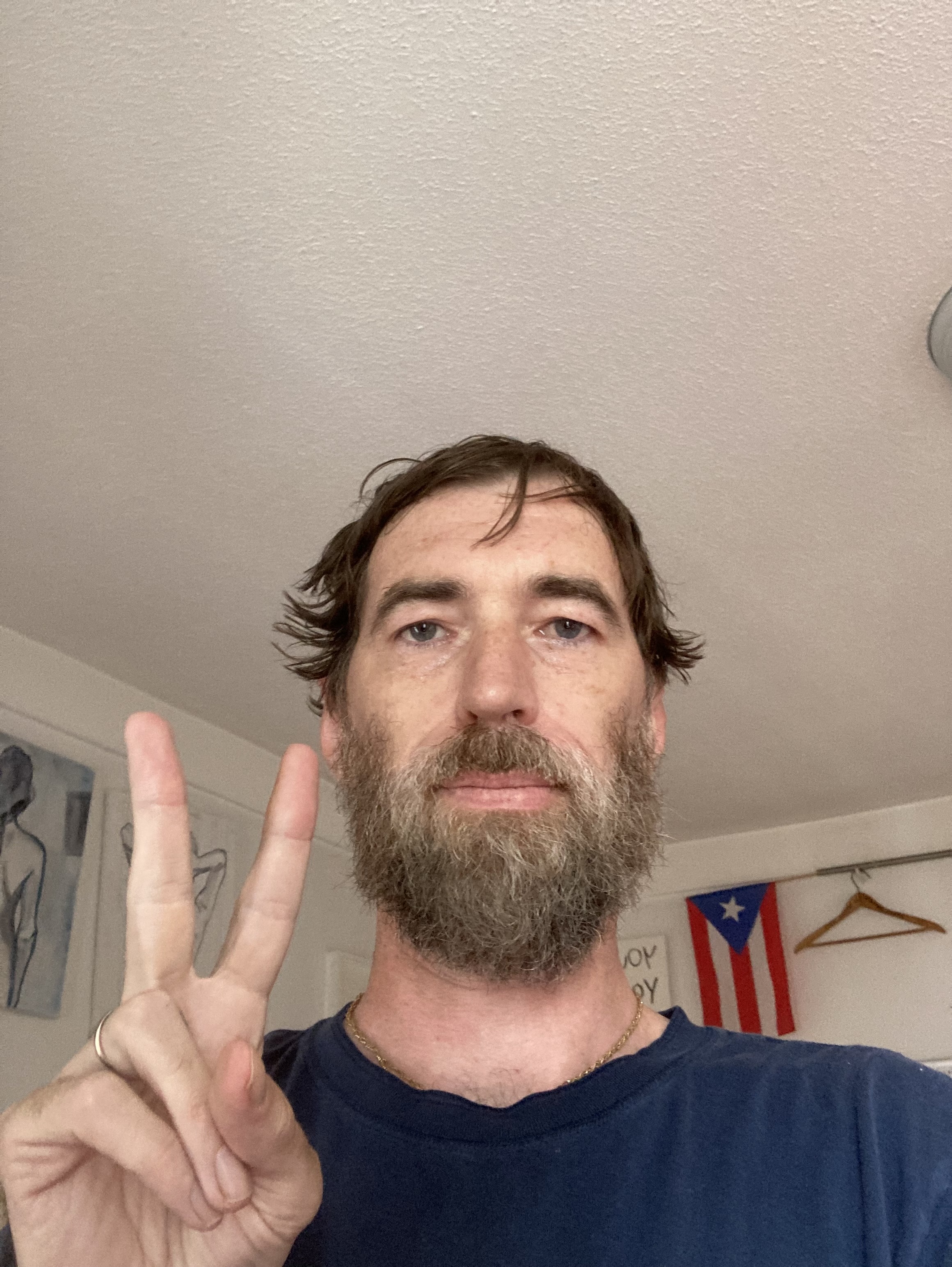
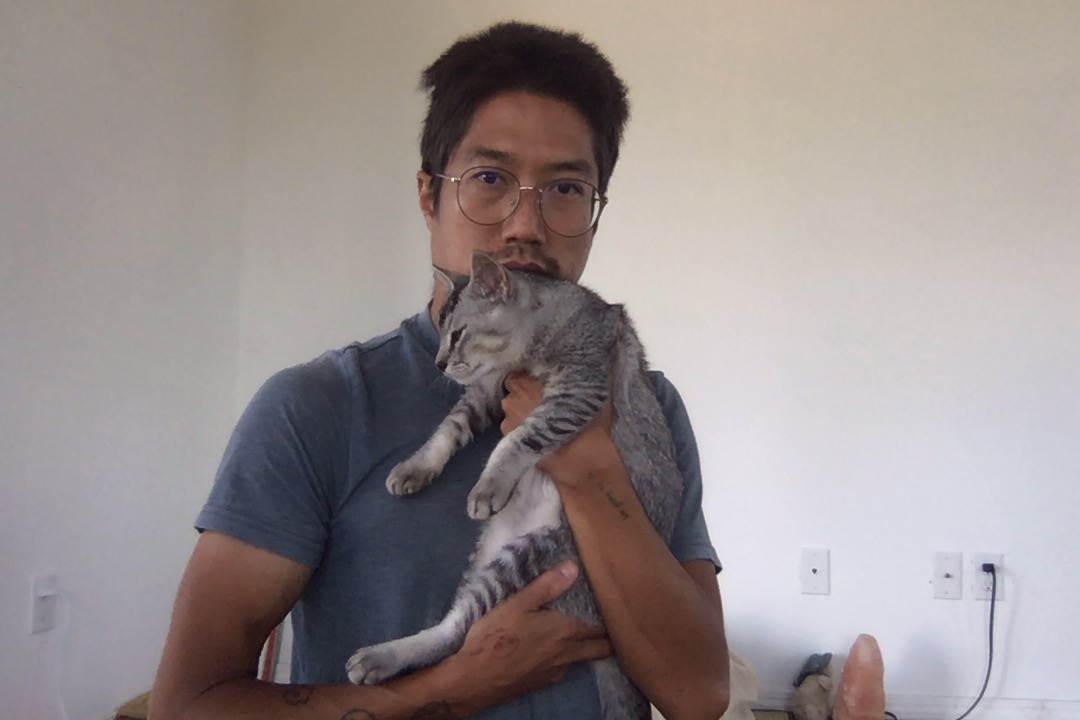
page that’s identical, and if I press Enter nothing happens. Audio... I’m sorry, Tao.
TAO LIN—Maybe just me recording will be fine.
BRAD PHILLIPS—I hope. And you have the microphone, so your’s is more high quality.
TAO LIN—Yeah.
BRAD PHILLIPS—Well, I like Andy Warhol. For me, this stuff’s all really good, where we’re just talking about the recording. But I get it.
TAO LIN—Yeah, I think so. This could go on for longer.
BRAD PHILLIPS—I think you’d like it, it makes sense with your notes about our phone call. It’s all procedural difficulties. Well it’s 6:24PM. So, I guess, hi Tao.
TAO LIN—Hi.
BRAD PHILLIPS—We’re starting the podcast now. Do you want to talk about the difficulties we had starting the podcast?
TAO LIN—Yeah, well it’s 12:24 now and we were supposed to start at 12, but then the person at office Magazine who was supposed to send us the link, the link didn’t work. And then we’ve tried emailing her and she hasn’t responded. So, we’re working on how to record—both of us—in case one of our recordings doesn’t record. And then we finally decided to start.
BRAD PHILLIPS—Because it’s 6:25 here and I couldn’t figure out how to record it, but trust that you know more. I feel kind of a bit nervous, I guess. Do you?
TAO LIN—Yeah, I do feel nervous. It’s just hard to think of what to say.
BRAD PHILLIPS—I know.
TAO LIN—We’ve prepared a good amount. I feel like we have a lot of topics.
BRAD PHILLIPS—One thing—
TAO LIN—Go ahead, sorry. I interrupt a lot.
BRAD PHILLIPS—I just think because I read your document that actually most of our conversation isn’t about anything—it’s about trying to think about talking about these things later that we never talk about.
TAO LIN—Yeah, you read that document I sent you. In this document, I collected all our communications regarding our first phone conversation, and the first message is from February 18. Maybe I can read what you said— this was a video message you sent on Twitter or Instagram. You said, ‘I also feel so strongly about Missing 411: The Hunted, that although I have not used the telephone to communicate with people in over one and a half years, I would actually call you on the phone to talk to you about it.’
BRAD PHILLIPS—That’s true. I remember that. Now I want to talk about Missing 411. But in my mind, I thought you said ‘Missing Four-OneOne,’ like me, but you said, ‘Missing Four-Eleven.’
TAO LIN—Yeah, I’ve been saying ‘Missing FourEleven.’
BRAD PHILLIPS—I think you’re saying it wrong.
TAO LIN—Oh, sorry. It’s just with like 311, I say Three-Eleven—you know the band 311?
BRAD PHILLIPS—No.
TAO LIN—You don’t?
BRAD PHILLIPS—No.
TAO LIN—Oh. Well, they were big when I was in like, middle school. But anyway, we kept talking about having a phone conversation, and I put like, 10 pages of our communications regarding that up until March 21. Then I stopped recording.
BRAD PHILLIPS—Why did you stop?
TAO LIN—It was just, I just thought I would finish it later and I could still compile it.
BRAD PHILLIPS—I kind of was touched that you recorded it and then I remembered that you just record everything and it’s not personal. Then I felt a bit stupid for being touched that you recorded it.
TAO LIN—Thank you for feeling touched. I don’t think I do it for everyone, because there’s just so much. So, I actually feel like this is one of the few things I’ve documented. I document stuff with my relationship and cats and then I can’t think of anything else. But with this thing, I feel like we could release it, like to promote this because this is our first phone conversation.
BRAD PHILLIPS—And it’s not even on the phone! Maybe I felt like this because I saw what you had kept about Giancarlo after he died. But I was thinking that, yeah, because we’ve talked so much about having a phone conversation and now our first phone conversation is public, even though we’re both, I think, very private. I don’t know if you think that you’re private. I think you do.
TAO LIN—Yeah. I think in some ways I’m private, but I feel like more in a physical way, maybe.
BRAD PHILLIPS—Like, actual privacy.
TAO LIN—Hmmm, yeah. I want to say I’m private and I do feel private, but then I write so much of my life in my books. So, I don’t know if I’m private. I am shy though.
BRAD PHILLIPS—Yeah. But you’re actually more brave on the internet. I commend your bravery. I’m always proud of you for being brave.
TAO LIN—Yeah. In the document, you said you haven’t talked to people in over one and a half years, but then later on you mentioned you have talked to Gian every two months or so on the phone.
BRAD PHILLIPS—Yeah, I saw that I had lied to you. I read that myself. Then I realized I had talked to Christine, my mom, my therapist and Gian only. So, it wasn’t as isolated as I made it sound. Maybe I was romanticizing things.
TAO LIN—That seems pretty isolated to me still. What were you gonna say?
BRAD PHILLIPS—I’m just, I’m looking at the document now, too. Thanks for thinking that I’m isolated also, though.
TAO LIN—Yeah, you also said that when we all met. We met in 2018, you came over to my apartment and you sat on the couch and talked for like, 10 hours I feel like.
BRAD PHILLIPS—Did I talk a lot?
TAO LIN—Yeah, you can talk monologuing just with other people, I remember.
BRAD PHILLIPS—Oh, I wasn’t like obnoxiously just talking? I was conversing with people.
TAO LIN—Yeah, that’s what I meant by talk. You were talking to Jordan and other people.
BRAD PHILLIPS—But I’m glad there was other people. I said in the document here that Jordan thought we would get along because he didn’t know any other person that was as self isolated as you and I. That’s true, I think.
TAO LIN—Yeah. You talk about not having any physical friends around you.
BRAD PHILLIPS—Yeah, I don’t have any.
TAO LIN—Yeah, I don’t either.
BRAD PHILLIPS—How do you feel? Do you feel deprived?
TAO LIN—Hmm... I don’t think so. I would like to do some group thing, like I’ve been talking about getting MMA training.
BRAD PHILLIPS—That hurts your feet.
TAO LIN—Hmmm, hmmmm...
BRAD PHILLIPS—I did that. I did that one time and my feet were fucked up for six months after, but go for it.
TAO LIN—What made you want to do it?
BRAD PHILLIPS—I think it was around when I met you, I had first started working out and getting muscle, and then I thought, ‘This seems like a thing that you do with your muscles, maybe.’ But then I didn’t have enough muscle to do that thing that you do with your muscles and it hurt my feet. But I think you would like it though. TAO LIN—Yeah, I think I could like it, having a teacher telling me what to do and being able to do it, and just being around some people sometimes. How’s your arm? You’ve been having arm problems.
BRAD PHILLIPS—I mean, now it’s 30% dead. It’s worse in the morning, and sometimes I use my phone and it makes it worse. It’s called cervical radiculopathy. It just feels like it’s not my arm, which is weird. It feels like it’s a stranger’s arm stapled to my body, sort of. But thank you for always asking me about it, and also you praised, or you told me you are grateful that I still had a nice percentage of arm left that I could feel.
TAO LIN—Yeah, I was glad you didn’t lose total control of it, because you were saying you had lost 90% at one point.
BRAD PHILLIPS—It was around 90. I screenshot the things you say sometimes, because they make me feel cheered up, because you’re very nice and positive to me.
TAO LIN—Hmm, thank you. Yeah. You’re so nice to me. It’s good having my politeness appreciated, and you’re so generous with your praise of my work, which seems rare to me. People usually don’t want to overdo it I feel like, but it’s hard to overdo it for the receiver I feel like.
BRAD PHILLIPS—It’s true!
TAO LIN—And it’s just because I can return the praise, because I like your writing so much.
BRAD PHILLIPS—Yeah, I don’t see why—I don’t see a reason to hold back on being praiseful, it’s a nice and good thing to do, and it makes things easier. I don’t know what the motivation would be behind withholding, praise. Maybe jealousy or competitiveness. I don’t feel those things.
TAO LIN—What about other people getting jealous of you giving me so much praise?
BRAD PHILLIPS—Jealous of me? Jealous of you?
TAO LIN—Jealous of both of us, yeah. They’re thinking like, ‘Why isn’t Brad telling me he loves my book?’
BRAD PHILLIPS—No one else has given me their book to read.
TAO LIN—Mmmm.
BRAD PHILLIPS—They could receive equivalent praise, but I think it’s important to be generous, really.
TAO LIN—Yeah, I agree. Thank you.
BRAD PHILLIPS—Things are painful enough as it is, and also, I know how much work it is to write a book. It’s difficult. So, why shouldn’t you tell your friend if he’s nice to you how you think he did a good job?
TAO LIN—Hmm yeah, thank you. And your blurb of my book was so good. I’m excited to give you a blurb for your next book.
BRAD PHILLIPS—I look forward to your blurb. I was happy to blurb your book because there’s an artist Ken Lum that I told you about maybe— your book reminded me of his pictures because I like when people are able to balance things that are funny with things that are really tragic. And that’s what I liked about your book—not that there was tragedy, but things that were serious were funny, things that were funny were serious. I really appreciate that. TAO LIN—Thank you. I’m sorry, I interrupted.
BRAD PHILLIPS—Go ahead.
TAO LIN—No, you haven’t been interrupting me, so you should go ahead.
BRAD PHILLIPS—It also just made me want to meet Dudu.
TAO LIN—That’s nice. I wanted to ask you about X-Files.
BRAD PHILLIPS—Yeah, go ahead.
TAO LIN—I’ve just heard a lot about it and I knew about it growing up, but I never watched it. But then I started hearing people talk about how it might be really accurate on its view of the world, but I’m not sure what it is. Could you explain it?
BRAD PHILLIPS—I watched it when it first came out, but I think I was probably snobby, like, so I thought I would say, ´This isn’t good,´ but secretly liked it. And then I watched it again, and it’s hard to figure out how to synopsize it. It doesn’t matter about the characters. I guess what matters is that the character of Fox Mulder, who’s one of the two protagonists, he, uh, believes in aliens and he consults this thing I told you, this tabloid, the Weekly World News, which is the tabloid that looks the most ridiculously unbelievable and outlandish. And I found out last year that that tabloid was bought by a CIA agent, which fits into this narrative. So, the idea was that he was getting his leads for mysteries to solve from there. And I don’t remember when it came out over 20 years ago, but the premise is that aliens are real, but that alien abductions are manufactured by the government. So that aliens have visited earth, The United States government has reverseengineered their technology and is now creating hoax alien abductions and alien sightings. And then I found out with the Steven Greer thing that I had already seen earlier, that that’s the kind of theory now with people that are in the intelligence community.
TAO LIN—Hmm. That’s surprising to me that it’s about that, that the US government is hoaxing alien abductions. Does it also portray aliens as a threat at all? The X-Files?
BRAD PHILLIPS—The first three seasons— and I guess it exemplifies what these people say the US government’s trying to do—the first three seasons, Agent Mulder, he believes the abductions and the aliens are real. And he believes that the sightings are real of genuine aliens, and then he has some experience, I can’t remember, and it’s made clear to him that actually these aliens perhaps are the American government. Um, and they don’t, in the first three seasons, the aliens aren’t depicted as either friendly or unfriendly. There’s other episodes with monsters that are made out of septic material, but ultimately the aliens are depicted as being agents of the American government. So unfriendly in that way.
TAO LIN—So, it doesn’t view any aliens as made by humans? Like machines?
BRAD PHILLIPS—No, no. His partner, Agent Scully, she is impregnated in some fucking, like, hybrid breeding project that’s done by the US government. Ultimately the US government is the evil alien and then there’s no real threats from alien life, and they are portrayed as being benevolent until they were kind of hijacked by the government.
TAO LIN—I like that. Are these two people FBI or CIA?
BRAD PHILLIPS—FBI agents.
TAO LIN—Interesting.
BRAD PHILLIPS—But when I found that thing out about the Weekly World News, it was interesting because I had read things before about how the CIA and the FBI wanted to make, um, you know, conspiracy theorists look like whack jobs, so they’d plant material. And it was just interesting to find out a CIA agent owned that newspaper because it made it more plausible that they’ve actually been doing this for a long time, and that, um, I don’t know how to say what I want to say. In the Steven Greer thing, he talked about alien abductions and the aliens on those crafts being just short humans in alien costumes. It’s all just so crazy to me, I guess, and it’s surprising to know that it could be real.
TAO LIN—Yeah, yeah, I feel the same way. It’s so crazy if all this is real. I bought a copy of the National Enquirer and checked it out after hearing you talk about that tabloid being bought by a CIA person.
BRAD PHILLIPS—I think you have the wrong tabloid, you’ll just learn about Brad Pitt’s diet maybe through there, unless there’s good stuff.
TAO LIN—Yeah, I think I got the wrong one. They also have The Globe.
BRAD PHILLIPS—The Globe is good, but the CIA stuff is particular to Weekly World News, which is out of print now.
TAO LIN—Oh, is it Canadian?
BRAD PHILLIPS—No, it’s American.
TAO LIN—Yeah, the National Enquirer one I got seems like it’s all celebrities.
BRAD PHILLIPS—Yeah, it is, which I mean, that’s interesting sometimes.
TAO LIN—Yeah, I like that it shows a lot of unflattering photos of celebrities.
BRAD PHILLIPS—I know they zoom in on people’s cellulite and they’re like on the beach with telephoto lenses. It’s horrific.
TAO LIN—Yeah, I liked it compared to just seeing really sexy, good photos of celebrities though.
BRAD PHILLIPS—Me too. When you said that you wanted an alien to grin at you, what do you think will happen after? Why do you want them to grin at you?
TAO LIN—Just because it’s a different facial
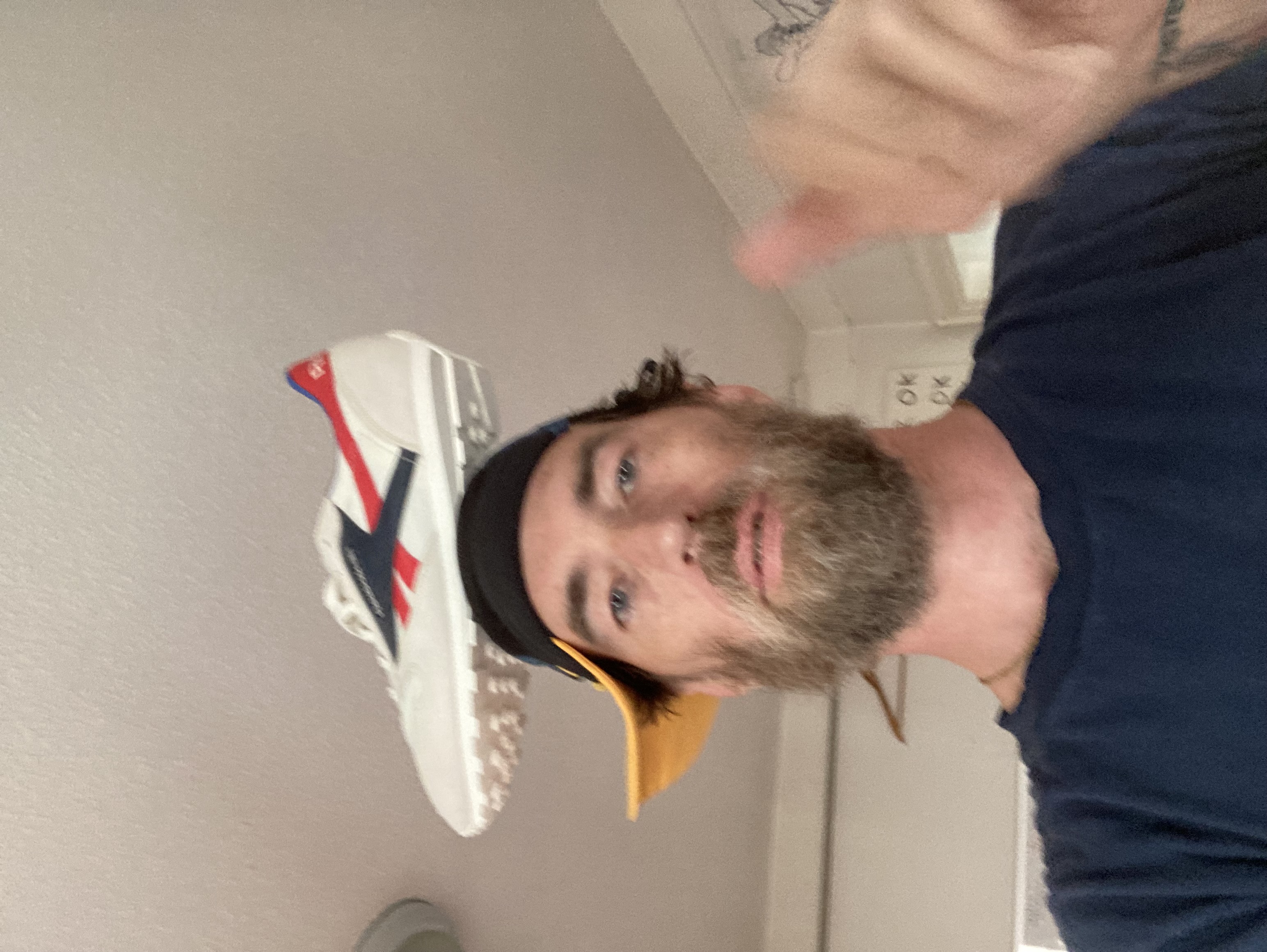
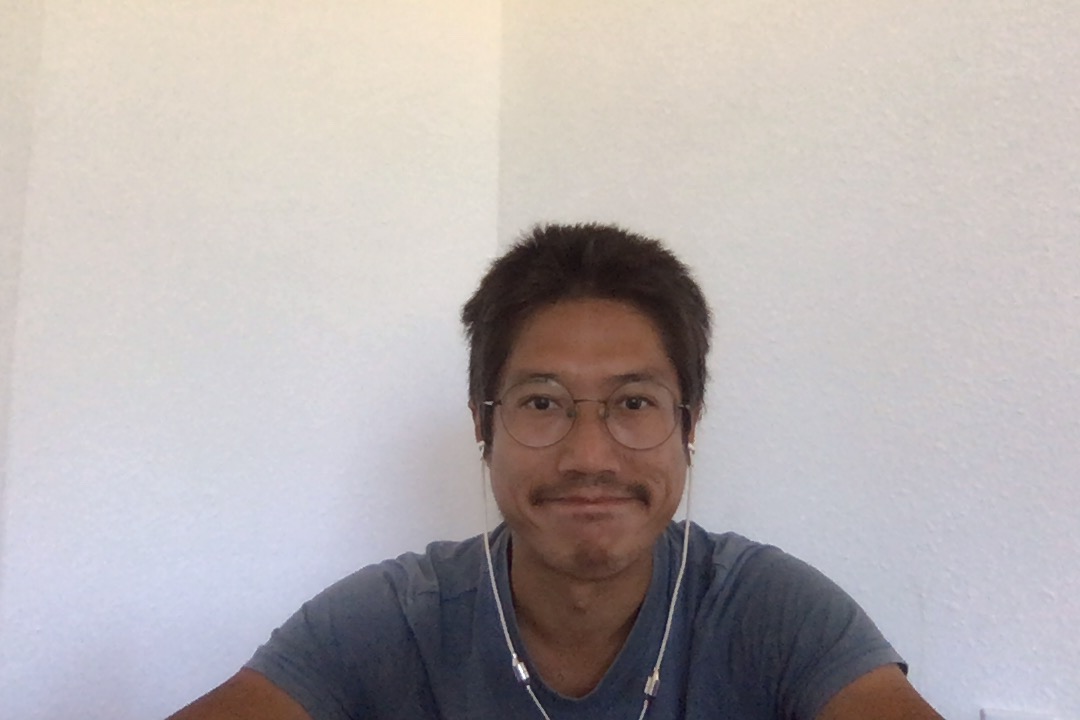
expression than I usually think of aliens making. Like, drawing from photos, I usually see them just having a blank, scary expression. And just now that I started thinking more and more that aliens might be peaceful, I want to just see an alien smile so I can get a different image of them in my head. So I won’t be as scared of them.
BRAD PHILLIPS—You’re like, preparing for it.
TAO LIN—Yeah.
BRAD PHILLIPS—I like that. I never see them make expressions. So, if the first expression is grinning, that’s nice.
TAO LIN—Yeah. Do they show them in The X-Files?
BRAD PHILLIPS—Yeah, they do, but they just have a blank face always or no mouth or something.
TAO LIN—Interesting. Does The X—go ahead.
BRAD PHILLIPS—No, you go ahead, please.
TAO LIN—Alright, I’ll go ahead this time. Does The X-Files—oh, I forgot... Does The X-Files refer to any real life events like Roswell?
BRAD PHILLIPS—Yeah, they talk about Roswell all the time. There’s episodes set in Roswell.
TAO LIN—What do they think happened?
BRAD PHILLIPS—The same thing that you think happened. I mean, it’s hard if people don’t know Stephen Greer, but it’s the same, it’s the same information, which makes me wonder who wrote The X-Files, or consulted on the show, that knew these ideas that the US government had reverse engineered alien technology?
TAO LIN—Yeah, yeah, and I wonder if there was any opposition to that perspective being put out there to so many people, because I feel like everyone who’s seen The X-Files is probably predisposed to believing Steven Greer.
BRAD PHILLIPS—Yeah. But, there is this movie called The Hurt Locker about the CIA and advanced interrogation techniques and apparently the CIA consulted on that movie and people think the same thing about this show Homeland—I don’t know if you’ve seen this—that it’s partly CIA propaganda. So, I wonder if maybe the American government—you’ve probably seen these things where the CIA says that they have reporters in every magazine and every newspaper. So, they must be on television too, right?
TAO LIN—Yeah, yeah. And in Hollywood. But it just seems like they wouldn’t want to support something like The X-Files as much as something like Independence Day, where the Navy is viewed as saving everyone and aliens are viewed as really bad.
BRAD PHILLIPS—It’s confusing what their agenda would be. I think it’s just constant instability about what the truth is, is sort of an agenda. Um, what do you think about how they keep releasing all this stuff now about alien sightings being real?
TAO LIN—I think I’ve just heard, or it just seems like it could be the continuance of trying to frame aliens as a threat.
BRAD PHILLIPS—Yeah.
TAO LIN—And then before there was more ridicule trying to get people not to talk about aliens and maybe now it’s shifting to where people can talk about aliens and it’s viewed as a threat.
BRAD PHILLIPS—Right, because it’s part of the daily conversations or something.
TAO LIN—Yeah, and the government’s saying that there are UFOs that they don’t know what they are.
BRAD PHILLIPS—Because they’re kind of like, ‘Aw, shucks, we don’t know what that is.’ But then that could mean later, ‘We’re going to shoot that thing down.’
TAO LIN—Yeah, yeah, or it could mean that they’re gonna, if these UFOs are made by them, they can fly one of them somewhere and blow up like some building, and the whole world will just be freaking out and like supporting whatever new bill to make better weapons to fight the aliens or something.
BRAD PHILLIPS—I just wonder what the end, or like, what the desired result is, if they can convince people of an alien invasion and then increase their military budget, what will they do? What do they want all this money for? I never understand that, the end result.
TAO LIN—It could be to just try to reach parody with UFO technology from real aliens, because otherwise it’s a threat to them.
BRAD PHILLIPS—That makes sense.
TAO LIN—Yeah.
BRAD PHILLIPS—Have you seen a movie called Arrival?
TAO LIN—Yeah, yeah.
BRAD PHILLIPS—You have?
TAO LIN—Yeah, I did.
BRAD PHILLIPS—It was good, right?
TAO LIN—Yeah, it had a different view of aliens.
BRAD PHILLIPS—I liked that they weren’t anthropomorphic. I liked that, because a lot of the sightings that you see are aliens near nuclear energy sites or nuclear reactors, and I think it’s pitched as, ‘This is why they’re evil.’ But in that movie, it suggests that they’re trying to warn us against nuclear technology.
TAO LIN—Yeah.
BRAD PHILLIPS—That comes up over and over, that people who are pro—not pro alien, but that are opposed to this malevolent view of aliens, that they’re actually just warning us consistently that nuclear energy is dangerous.
TAO LIN—Yeah, it was like that in the movie The Day The Earth Stood Still, too. You’ve seen that?
BRAD PHILLIPS—Yeah, a long time ago. If there was an alien culture that was wiped out by nuclear energy and they were coming to warn us, this is very nice of them, right?
TAO LIN—Yeah, yeah! And you sent me that video of Joe Moc-Neagle—is that how you say his name?
BRAD PHILLIPS—I think it’s Joseph McMoneagle.
TAO LIN—Oh, yeah. Sorry. That’s why I think it’s weird, his name, the second half is so long. McMON-EAGLE.
BRAD PHILLIPS—You don’t have to say sorry. It’s ‘cause your last name is so short.
TAO LIN—Yeah, I’m used to short last names. But this guy, he remote viewed for the government’s Stargate program, right?
BRAD PHILLIPS—Yeah.
TAO LIN—Yeah, and he was talking about how he remote viewed Mars and saw these giant pyramids and stuff.
BRAD PHILLIPS—Yeah, it’s amazing right?
TAO LIN—Yeah.
BRAD PHILLIPS—Because if you Google him, he just looks like a dirty hippie or a new age person, but he was one of the founders of the remote viewing program and satellite photographs of Mars, they show kind of the faint outlines of structures, and so when he did that project, he didn’t know what his target was, which turned out to be Mars 1.5 billion years ago or a million years ago. And he drew Mars, but with drawings of those structures as not eroded. So, he was genuinely seeing them in the past and mimicking and drawing the structures that we see in photographs, but as not yet eroded by time. So, I believe that it’s real. I don’t know if you did. Did you believe that it’s real?
TAO LIN—Yeah, yeah I did believe. And I’ve read other stuff about NASA covering up finding structures on the moon and Mars too.
BRAD PHILLIPS—Like what?
TAO LIN—I’ve read this guy, Richard Hoagland, he used to work for NASA. He came out with this book all about this—how they routinely find structures on the moon and Mars, like the face on Mars, and then they try to cover it up, it seems.
BRAD PHILLIPS—I—
TAO LIN—Sorry.
BRAD PHILLIPS—No, don’t be sorry.
TAO LIN—Go ahead.
BRAD PHILLIPS—No, you go.
TAO LIN—I just wanted to ask you about your personal experience with remote viewing.
BRAD PHILLIPS—I bought that McMoneagle book in 2018 and then Christine and I, we started practicing. So, I would draw a shape or something on a piece of paper—really simple things, like an S shape or a triangle on a piece of paper—fold the paper and just put it where she could see it. But it was impossible for her to see the image, just the paper. And it was surprising that pretty quickly she was able to draw things that were similar. And then we went to Los Angeles for a show we had and we tried it again with our friends and our friends were able to do it too. It’s not like, it’s not the sort of thing where you can say, well, anything can look like this shape. You can write anything on a piece of paper, you could write a word in Spanish. You could make a drawing of a triangle, you could draw a Sonic Youth album cover. So, if I drew a triangle and she drew something that looked vaguely triangular, this is interesting, right?
TAO LIN—Yeah, yeah. So, mainly she was trying to figure out what you drew. Did you try to remote view?
BRAD PHILLIPS—I’ve tried too, yeah. She was better than me and then our friend Eli was better than everyone. I drew the shape of like, a bird, like a circle for the head and two wings. And he drew something that had like, a circle in the middle and two loops at the bottom. Considering all the images that you can think of, it’s close.
TAO LIN—Yeah. Some people are probably better at this than other people. Do you think it has to do with meditation? Can you tell me your experience with meditation?
BRAD PHILLIPS—Just that I’m never good enough at it. I don’t know if you can be good at it, but somewhere in the book, in the McMoneagle book, he says that remote viewing is an innate ability that we have and that it comes from billions of years ago, us needing to be able to say like, find our lost child or find food, to move through time and space where it’s urgent to your survival, to be able to do so. And now it’s just, it’s maladaptive to the world that we live in onw. I think that you should try it
TAO LIN—Yeah, I want to try it. I’ve been trying to practice meditation more and I feel like I’m not good at it either, partly because of my health. In the morning, I try to meditate every morning, but a lot of the mornings I’m sneezing a lot for some reason, and it interrupts. Often I’m itchy too.
BRAD PHILLIPS—That’s cute.
TAO LIN—Yeah. It’s pretty hard.
BRAD PHILLIPS—But anyone who would teach you meditation would say for one that the thing that you’re doing wrong is saying to yourself that you’re doing it wrong, not how you’re meditating, but that you’re judging your meditating. So, if you’re having an attack of sneezing, meditate on the sneezing.
TAO LIN—Yeah.
BRAD PHILLIPS—Because every time that Tao sneezes, you notice how Tao just sneezed. And when you’re itchy, just notice itchy. That’s a good meditation.
TAO LIN—Yeah, thank you. That’s good advice. You should be my meditation teacher. You do look like a guru I feel like.
BRAD PHILLIPS—Yeah, you can’t judge your meditation. This is the big mistake.
TAO LIN—Yeah. I feel like with remote viewing too, when I hear Steven Greer talk about, he talks about how you have to just like, be confident that you can do it, that it’s possible.
BRAD PHILLIPS—Yeah. I mean, my mom had breast cancer in 2020—no, sorry, 20 years ago, she has cancer now—and she did this thing of just telling herself and visualizing her tumor shrinking, and when she had an MRI, they couldn’t explain the shrinkage of her tumor. So, she was confident in the tumor shrinking.
TAO LIN—Yeah, that makes sense to me.
BRAD PHILLIPS—I believe these things. Just judging or judging all the things you’re doing always is problematic and it’s a hindrance to success. Not that I don’t do it, of course I do. Meditation is boring, but then you just meditate on how it’s boring, I guess. I’m talking so much. But I think people want to have some experience, a mystical experience or something, but it’s just nothing. There’s nothing mystical. It’s just a boring thing. And that’s when you realize that everything is just a boring thing. That’s not so guru, but...
TAO LIN—Yeah, I don’t get that one as much. What about remote viewing? How does that relate to boring-ness?
BRAD PHILLIPS—I don’t know. I don’t know how meditation relates to remote viewing. I think it’s just not judging the thoughts you’re having and also believing that your mind can do more than you’ve been taught that it can do.
TAO LIN—Hmm... Yeah, but in meditation or in remote viewing, do you try to like, calm your mind first by meditating? Or how do you do it?
BRAD PHILLIPS—I guess I would. I haven’t done it enough to say I have like, a routine, but I think that would be ideal. Because they talk about, you know, having a quieted mind and this other guy, Robert Monroe, he does a lot of meditation, a lot of binaural isochronic beats or something, that type of stuff. But I’m barely a remote viewer. I was just trying to learn a party trick. I was amazed at what they could do. I don’t understand it—it makes me feel a bit scared in a way, because I don’t understand it, and that’s scary.
TAO LIN—Yeah. It seems like maybe people, or everyone who’s conscious really has access to every place or point in space and time, and that somehow you can access that. That’s really overwhelming to think about if true.
BRAD PHILLIPS—It’s too overwhelming.
TAO LIN—Yeah.
BRAD PHILLIPS—You said you wanted to be able to remote view the aliens so you could get them to come to you. And then that made me think how I said when my grandfather died I thought he could watch me masturbate. Thus, just be freaking out and like supporting whatever new bill to make better weapons to fight the aliens or something.
TAO LIN—Yeah it means, like, who knows how many people are watching me masturbate, like, in the future?
BRAD PHILLIPS—So many people are watching. So many people are watching.
TAO LIN—What’s the weirdest thing you’ve heard of someone trying to remote view?
BRAD PHILLIPS—Well, it’s not weird, but in this book this guy Skip Atwater wrote, they severed with other remote viewers because people were remote viewing the stock market, trying to make money—that’s what I would do. Spiritual or not, that makes sense, to try to get the money.
TAO LIN—Yeah.
BRAD PHILLIPS—Wouldn’t you want that?
TAO LIN—Yeah. Did it work?
BRAD PHILLIPS—I think so, yeah. Did you see the thing about the remote viewing and uh, the Heaven’s Gate cult?
TAO LIN—No. What happened with that?
BRAD PHILLIPS—I think I sent you the link to this documentary. There was a group of people that were remote viewers and they were associated with the Monroe Institute, and when the Hale-Bopp comet was coming, they remote viewed and saw what they called a companion object, which was the shape of like, a vehicle behind the comet. And they talked about it on this guy Art Bell’s talk show, he does like, a paranormal type talk show. And the Heaven’s Gate cult people listened to his talk show and they had been waiting for some sign that the world was ending, and they heard that these remote viewers had seen some shape behind the comet, they became convinced that this was the alien aircraft coming to take them home, and they all committed suicide. So, this woman says she feels responsible for this mass suicide.
TAO LIN—The woman who remote viewed the object?
BRAD PHILLIPS—Yeah. I have enough trouble just dealing with getting up, eating breakfast, remembering to exercise.
TAO LIN—Yeah, me too.
BRAD PHILLIPS—Are you exercising?
TAO LIN—I’ve been biking once a day, yeah. I could exercise a lot more though. I only get like 20 to 30 minutes.
BRAD PHILLIPS—When I met you, you could do a lot of pull-ups.
TAO LIN—Yeah, I had a good pull-up bar in my room. I don’t have a pull-up bar anymore. But the weirdest thing I’ve heard of someone remote viewing, after you showed me that Joe McMeagle, or McMoneagle.
BRAD PHILLIPS—Yeah.
TAO LIN—I looked up his books and in one of his books, he said he remote viewed like five or 50 million years ago Earth to see what was happening then.
BRAD PHILLIPS—Yeah.
TAO LIN—And he saw like these humanoids or something.
BRAD PHILLIPS—Yeah, and didn’t he say the same thing about Mars? That he saw like, a civilization of humanoid type creatures that were in distress or something?
TAO LIN—Yeah, yeah! Yeah. And he said that he thinks that these Mars people, they were like 11 feet tall or something, and that we’re the descendants of them, we escaped the earth.
BRAD PHILLIPS—Yeah.
TAO LIN—Yeah.
BRAD PHILLIPS—It sounds possible, honestly.
TAO LIN—Yeah, I think it’s possible. I feel like more and more, stuff that, or just the truth is probably even stranger than what we’re considering right now.
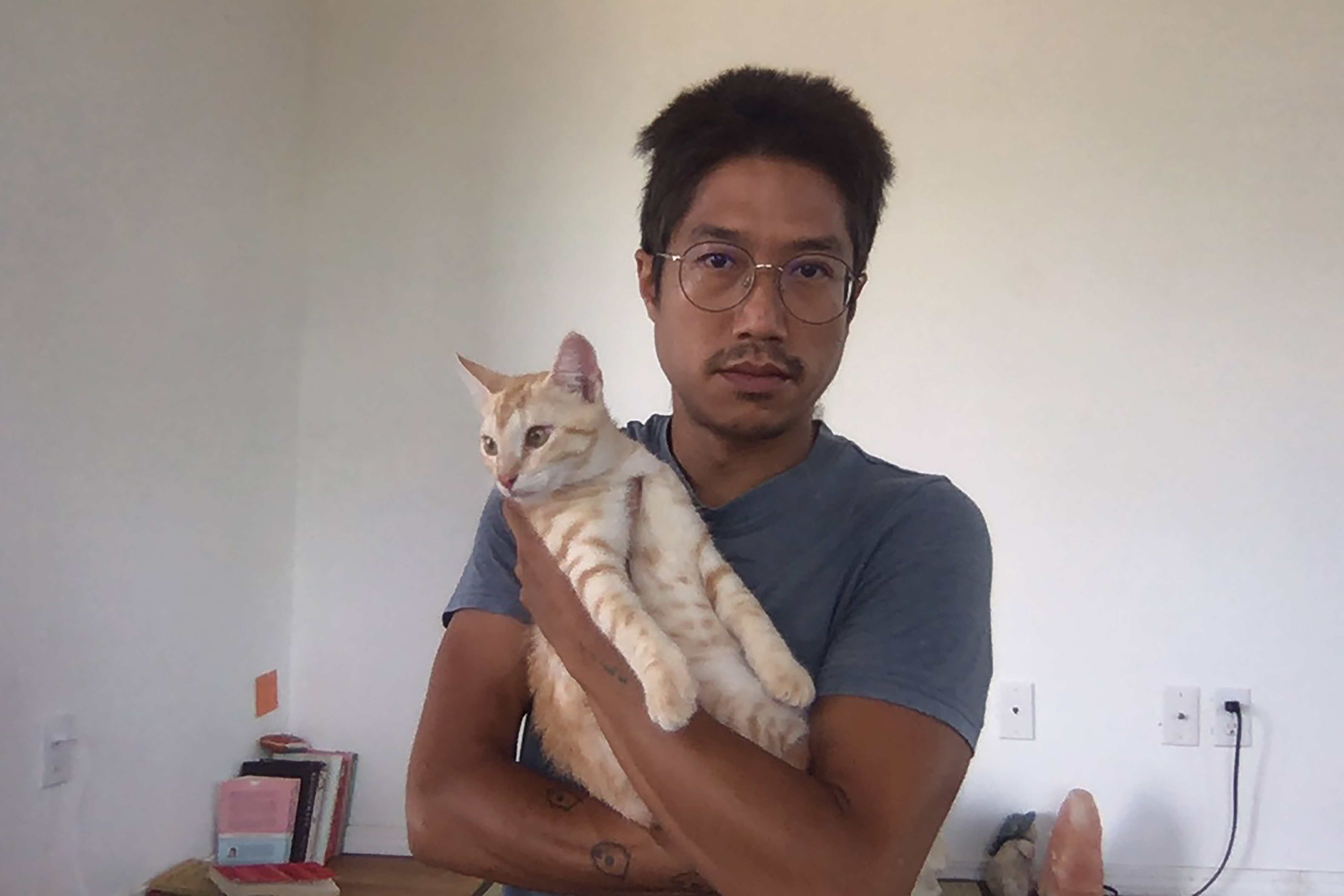
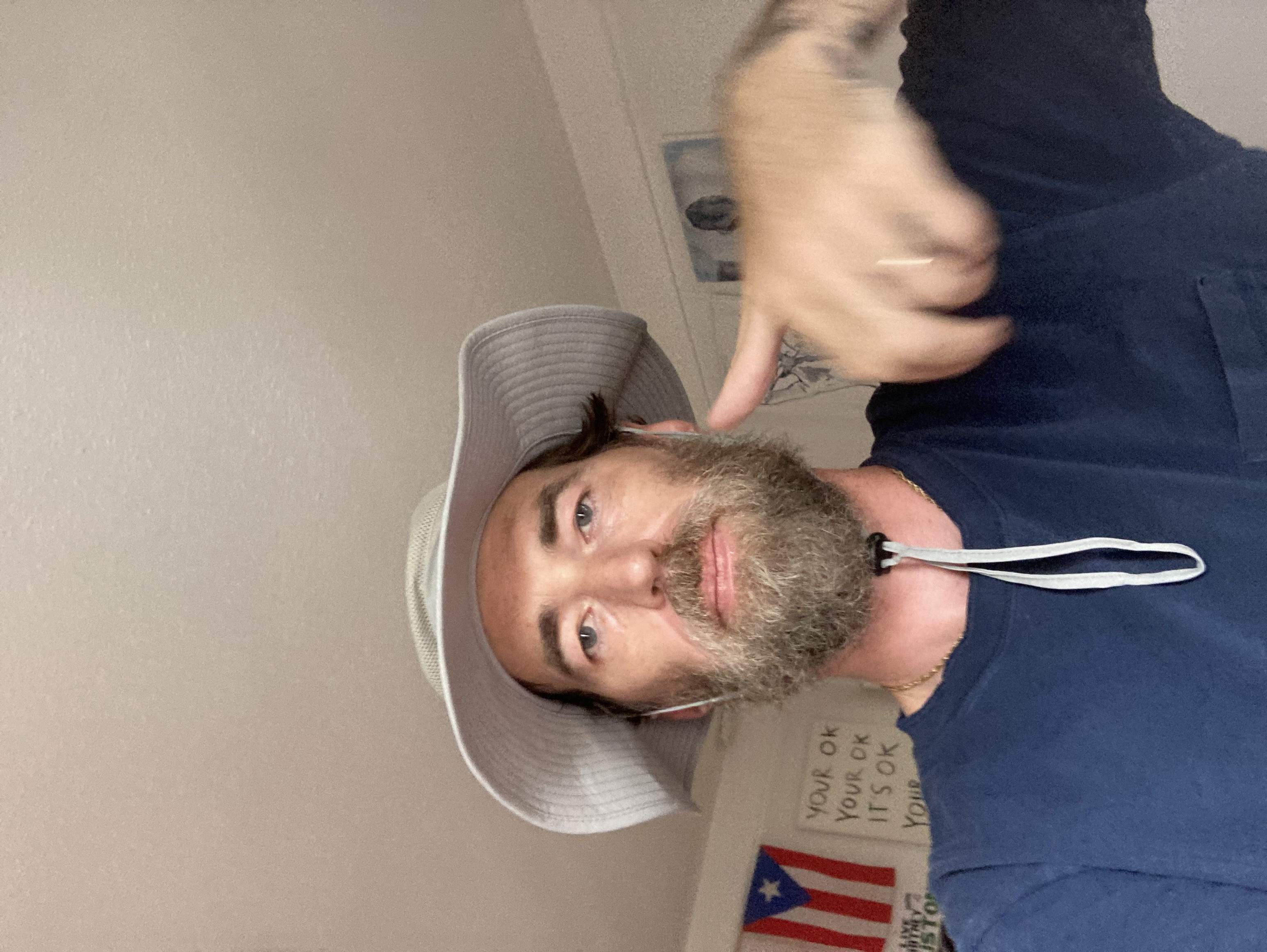
BRAD PHILLIPS—I think so.
TAO LIN—Yeah.
BRAD PHILLIPS—Then I saw this show Ancient Aliens and I started to believe them too.
TAO LIN—Yeah, I’ve heard of that. And you were watching Hunting Hitler. I tried to watch that. I tried. You needed some kind of account though, but then I watched clips of it on YouTube. I wanted to know what the final conclusion was of their search.
BRAD PHILLIPS—The same as every bullshit show they get you hooked in, is that they don’t have any answers for you. But up until the end, there’s so much evidence of the Nazis living in South America. And I had researched a lot about this place, Colonia Dignidad in Chile, which is where this Nazi pedophile started a cult, and then he started to train people in torture who worked for Pinochet, and Hitler went there for his birthday or something. And there’s really old Argentinian people who remember seeing Hitler in this village. There’s so much infrastructure that they built in certain South American countries, and they were showing they were digging up land and finding pools that had like Nazi tiles in them. There’s so much stuff. It’s not really a conspiracy theory so much, it’s just information that they only found recently.
TAO LIN—Yeah. And you know, about Operation Paperclip, where they brought over Nazi scientists? I feel like that didn’t come out until like the ‘90s or something.
BRAD PHILLIPS—Yeah, it did come out in the ‘90s.
TAO LIN—Yeah, and they brought out like 1400 scientists. I’ve read that a lot of them still just openly identified as Nazi.
BRAD PHILLIPS—Yeah.
TAO LIN—And then I read that they infiltrated NASA and other organizations, and that they’re possibly a part of what people call the Deep State.
BRAD PHILLIPS—Really?
TAO LIN—Nazis, yeah.
BRAD PHILLIPS—Well, they’re hard to get rid of, the Nazis. But it all just seems surprisingly believable to me now after things that I’ve seen, but I always worry about seeming like a crackpot at the same time.
TAO LIN—Yeah me too. Yeah. It’s hard to talk about these things.
BRAD PHILLIPS—But that’s kind of the reason why there’s things like the Weekly World News— so that you end up looking like a crackpot, you know?
TAO LIN—Yeah. I think there’s definitely a reason why it’s hard to talk about all these things. Like, I don’t think I could just write all this stuff about UFOs and have my publisher publish it.
BRAD PHILLIPS—No. TAO LIN—I would need to be careful with like, what I could say, or otherwise self-publish it, but then no one will read it.
BRAD PHILLIPS—I read the self-published books that you recommend.
TAO LIN—Yeah, self-published books are good for this kind of stuff.
BRAD PHILLIPS—I don’t know how, or I don’t know what way you can talk about this stuff that isn’t already suspect—the mechanisms, they’ve made them so successful, that no matter what you look like a nut job.
TAO LIN—Yeah, yeah. I feel like with the aliens, there’s certain ways in, like, if you talk about aliens being peaceful and just not wanting to view it as a military thing, I think a lot of people can get behind that.
BRAD PHILLIPS—I would hope so.
TAO LIN—Yeah.
BRAD PHILLIPS—People like Steven Greer, or the guy who did that show Unacknowledged, they’re not just people who live with their mom in Buffalo—they’re people that work at the Pentagon, and they’re generals.
TAO LIN—Yeah. Yeah.
BRAD PHILLIPS—It’s shocking to me.
TAO LIN—Yeah, he has so many people from the military and so many politicians and some astronauts who support him. And then there is some stuff like this that people can talk about. Like, I feel like MKUltra—everyone accepts that.
BRAD PHILLIPS—Yeah.
TAO LIN—And I remember I recommended that book Surviving Evil to you, and you read it, which I was grateful for.
BRAD PHILLIPS—I was grateful you recommended it. It was so disheartening. Yeah, I mean, if everything ends up being revealed in time, it’s unfortunate that we look like nut jobs believing it, maybe a decade earlier than it becomes acceptably believable.
TAO LIN—Hmm, yeah.
BRAD PHILLIPS—The MKUltra program is pretty well known, and then in Surviving Evil, I was horrified by how horrible, how horrifying some of the things were. I was shocked.
TAO LIN—Yeah, it was disturbing. And didn’t you—you gave me Karen Wetmore’s contact info or something.
BRAD PHILLIPS—Yeah, and there was two little clips on YouTube of her that vanished, and one of them was two guys had found her—and I’ll try to say it right—they took her outside and she found that she could shoot a rifle with like marksman ability, but to her mind had, she had never held a rifle before in her life. And in the video description, they said that they had been talking to her and they had posted these two videos, and that she had suddenly just kind of gone silent and not replied to them, and then a couple months later, the videos were just gone off of YouTube.
TAO LIN—Yeah, she’s pretty old. I wonder...
BRAD PHILLIPS—Yeah, she’s in her seventies. It’s sort of hard to understand since there are like astronauts and generals and people in the military, why this stuff isn’t more well-known.
TAO LIN—Yeah.
BRAD PHILLIPS—Do you think that most people wouldn’t want to know that this was real? Or potentially real?
TAO LIN—Yeah, I feel like... Yeah, because I feel like if you just think all this stuff is a ridiculous conspiracy theory, your view of the world might be like, the same as like, Joe Biden or something, where you just think like, the world, as long as Trump is gone, that things are pretty good. This disturbs that big time, like, things are so dysfunctional potentially. So, I feel like a lot of people would be reluctant to start thinking things like Nazis are still around.
BRAD PHILLIPS—I’d rather know what’s really going on I think.
TAO LIN—Yeah, I would.
BRAD PHILLIPS—It reminds me when the first Gulf War happened. I was, you know, an obnoxious, young person. And I would tell my mother, ‘George Bush was bad,’ you know? Or after 9/11, I would say, ‘George Bush is bad.’ And then years later, when things came out about Abu Ghraib prison, my mom would say, ‘George Bush is bad.’ It’s kind of like that, you know, like I believe this stuff is possible now, but I look like a lunatic for believing it. But maybe later everyone will think, ‘Yeah, it’s possible. There are aliens.’
TAO LIN—Yeah.
BRAD PHILLIPS—Why do you think you’re interested? I’m more interested in why we’re interested, and what is it you think makes you want to believe this stuff or think about it?
TAO LIN—Part of it is just wanting to get people to think that the mainstream media and news isn’t accurate.
BRAD PHILLIPS—Yeah. There’s nothing bigger, there’s nothing larger? Like, do you feel life on earth is dissatisfying and you want there to be a broader place?
TAO LIN—Yeah, yeah. It’s that, too. It just seems learning about remote viewing and all this, life just seems more magical.
BRAD PHILLIPS—Yeah.
TAO LIN—Without all this stuff, it’s just like, so bleak. Like, you just live and die and there’s no meaning.
BRAD PHILLIPS—Yeah.
TAO LIN—All this stuff also seems to indicate that after you die, you’ll still exist in some way.
BRAD PHILLIPS—Do you want to exist still?
TAO LIN—I don’t know. If it’s better, yeah. I don’t see how it could get worse after dying. It just seems like it’ll get better somehow.
BRAD PHILLIPS—Yeah.
TAO LIN—The release or something. But we should talk about For-Eleven, or Missing FourOne-One, I mean. Sorry.
BRAD PHILLIPS—Missing 411.
TAO LIN—That’s the first thing we wanted to talk about. It was this, I think, it’s just two documentaries, right?
BRAD PHILLIPS—Yeah.
TAO LIN—You told me to watch them and I did.
BRAD PHILLIPS—There’s Missing 411: The Hunted and then Missing 411 about children. But I liked the one about The Hunted. It’s hunters though, it’s people that are hunters. They document all these instances where hunters who are mostly always elderly and kind of infirm are with people in a hunting party and then vanish off the face of the planet. And they can’t, using all the typical means they would use to find a missing person, can find nothing. And sometimes months later the remains of the person will turn up in a place that had already been searched dozens of times. You liked it?
TAO LIN—Yeah, I liked it a lot. I couldn’t figure it out, it seems so mysterious how this would happen, and I feel like the best theory I got was that the government was abducting people for some kind of experiment or something. I remember you said you thought it might be related to parallel universes.
BRAD PHILLIPS—Yeah, I thought more it would be quantum physics, people just falling through some rip in the space-time continuum. They were such remote and strange places that I couldn’t fathom a reason why the government would be there to take an old diabetic guy from Utah and rip him out of the space-time continuum and then deposit him again there later. Like, cadaver dogs and these kinds of dogs that they use to find people, they’re shockingly precise. Like, it blows my mind what they can do. They can find someone’s hair, someone’s dandruff, like 10 miles away, but they would take these dogs to where somebody had gone missing and they couldn’t find anything. The dogs would whimper and look confused and run away.
TAO LIN—Yeah, in one of them, a kid disappeared at one spot and then reappeared, like way farther away than he could have gone in the snow or whatever.
BRAD PHILLIPS—Yeah.
TAO LIN—But with your theory, wouldn’t that happen with people in other places too?
BRAD PHILLIPS—Yeah, it would. But maybe, maybe no one notices if someone goes missing, like on a Friday night in Houston from like, the club district.
TAO LIN—Yeah.
BRAD PHILLIPS—It’s more noticeable if there’s four people in the forest.
TAO LIN—Yeah, and then I remember in The Hunted one that at the end, they showed a woman who saw a being that was like the thing from the movie Predator.
BRAD PHILLIPS—Yeah, yeah.
TAO LIN—Yeah.
BRAD PHILLIPS—I don’t know about that one.
TAO LIN—Well, it seems to be trying to say that that has something to do with the disappearances, right?
BRAD PHILLIPS—Yeah.
TAO LIN—Yeah, I wish there were more documentaries by them.
BRAD PHILLIPS—I know, I know. It’s confusing because all the other cases, the person just seems to have vanished, but then there’s that one about a kind of creature. But then also do you believe in Bigfoot? I do.
TAO LIN—Yeah. I think there could be, yeah.
BRAD PHILLIPS—Yeah.
TAO LIN—Yeah.
BRAD PHILLIPS—People are still discovering new species of insects and fish in remote places. So, to me, the forest in North America still has very remote places. So, why couldn’t there also be unseen species of bipeds?
TAO LIN—Yeah, definitely. It doesn’t seem that outlandish. But in the documentary, didn’t they have one group who heard, like, something making noises?
BRAD PHILLIPS—Yeah, it was kind of like some metallic sound, like a clanging or a banging sound. And then like the kid, there was a guy who went missing and he showed up in a place where if he had walked there, he would have had to walk like five kilometers in knee-high snow with no shoes. And then they found his shoes kind of resting on a rock and then his skull resting in another place and no other parts of his body.
TAO LIN—Yeah, that was messed up.
BRAD PHILLIPS—You said you felt scared and had a nightmare about a woman that they found in the fetal position.
TAO LIN—Yeah. After I see stuff like that at night, I get scared. And then even if I read about UFO alien abductions, I’ll get scared at night.
BRAD PHILLIPS—That’s sweet.
TAO LIN—Yeah, recently I’ve been getting scared and I’ve been also having this message in my head that I should listen to my intuitions, because I hear Stephen Greer talking about that, that I should do that. And then it just makes me think, ‘Am I actually sensing something near me?’ And it just makes me more scared.
BRAD PHILLIPS—Then you get more scared.
TAO LIN—Yeah, I don’t know if people should
always follow their intuition. What if it’s wrong?
BRAD PHILLIPS—No, not always. Not always. It depends what it’s about. I think I’m a pretty big fan of intuition for things that are creative, like writing or making art.
TAO LIN—That makes sense.
BRAD PHILLIPS—My intuition if I see an armored car is kill the driver and steal the money. That’s not a good idea, right?
TAO LIN—Yeah, yeah. Did you have any other theories about The 411 besides the parallel universe?
BRAD PHILLIPS—Not really. I find it really spooky, more spooky than aliens.
TAO LIN—Yeah. The thing that made me think it could be the government abducting people is just how the people who disappear would show up far away as if they had been taken up into it an aircraft or something.
BRAD PHILLIPS—Yeah, I know that part’s bizarre. But why would they deposit them? Why would they leave them anywhere? I mean, all these things are so... I just couldn’t see the government just being ready in a forest in Wyoming to take an old guy. If they need people to abduct, go to the city, you know? There’s people everywhere. I found that more terrifying, because with the aliens, there’s an image of a potential nemesis, but with someone just missing, I don’t even know what to be afraid of.
TAO LIN—Have you seen any UFOs?
BRAD PHILLIPS—I think that one time in Manitoba, I was with two of my friends in 2005, and there’s a lot of UFO sightings in Manitoba, and I don’t know, what’s beneath it, North Dakota? We were driving to a really remote place and my friend, his dog was in the back seat, this little shitty dog, and I was in the back seat, and my other friend was in the passenger seat, and his dog started to like shake and get really yappy, and then it vomited. And I remember looking into the sky and I saw three little bright, like rectangles far away. I remember the guy driving said that was weird about his dog, and then we got back to where we were supposed to be. No one talked about anything, and then like a couple hours later, I said, ‘Do you guys remember seeing anything?’ And they both said yes. And my friend talked about his dog puking as being totally inexplicable, and then we all talked about how after the dog puked, we didn’t remember speaking in the car and we got back to where we were and we didn’t speak for like an hour. And then we all just remembered this group experience that we hadn’t communicated when it happened. I believe. Or I think that was something weird.
TAO LIN—Yeah, that seems weird. And I’ve read about people when they see UFOs in groups that somehow they don’t talk about it.
BRAD PHILLIPS—Yeah.
TAO LIN—Yeah, it’s weird. Did you have any missing time, do you think?
BRAD PHILLIPS—No. I mean, I’m always missing time, but we didn’t really remember the drive, and the part that was the strangest was his dog getting sick right before it happened.
TAO LIN—Yeah, that seems hard to explain.
BRAD PHILLIPS—Dogs can sniff out tumors, you know? So, maybe they can see an alien.
TAO LIN—Yeah, or just sense that...
BRAD PHILLIPS—Something’s off, right?
TAO LIN—Yeah.
BRAD PHILLIPS—Did you ever, when you were younger, just go into the forest and then become very scared?
TAO LIN—Hmm... No, but probably, I’ve been scared just like, standing beside the forest, or looking at the forest. Yeah, I feel like I got scared a lot as a kid, I’d be scared of my closet if it was open, and just scared if I was on my bed and my feet were uncovered that something would grab me.
BRAD PHILLIPS—Did you check under your
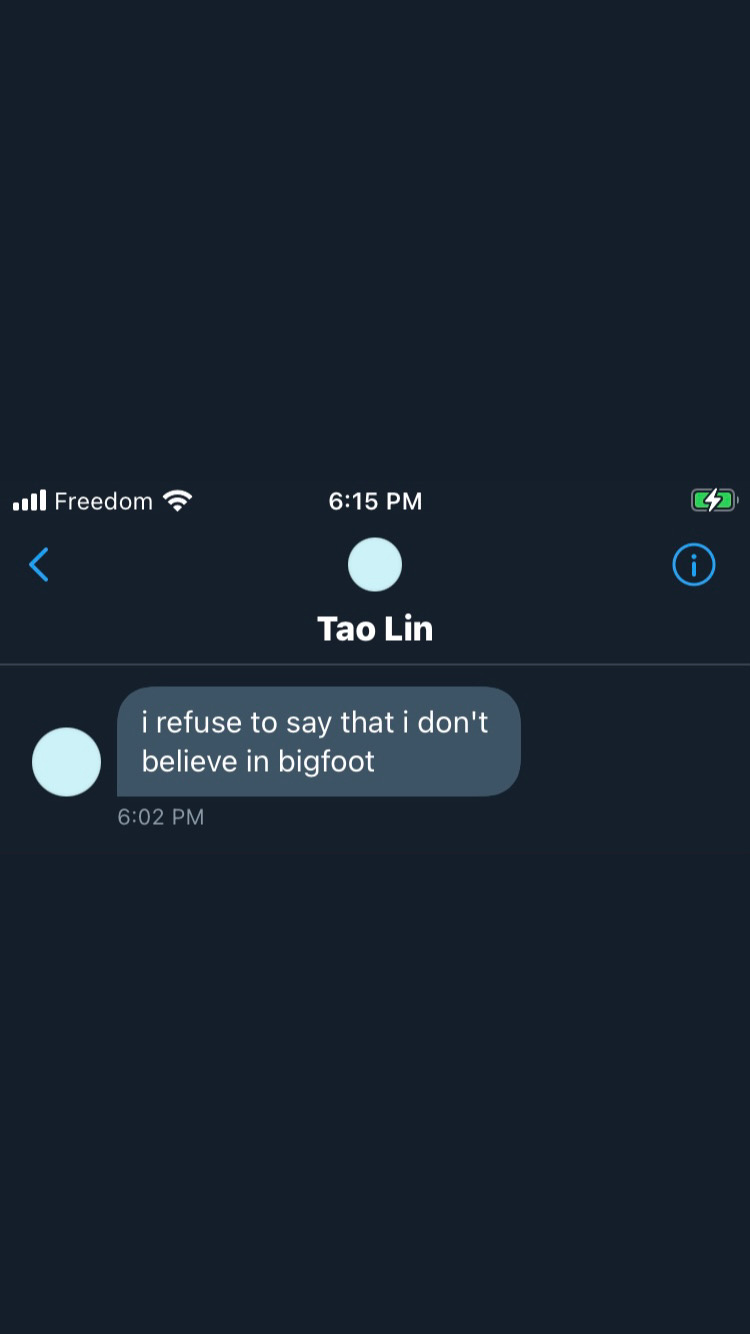
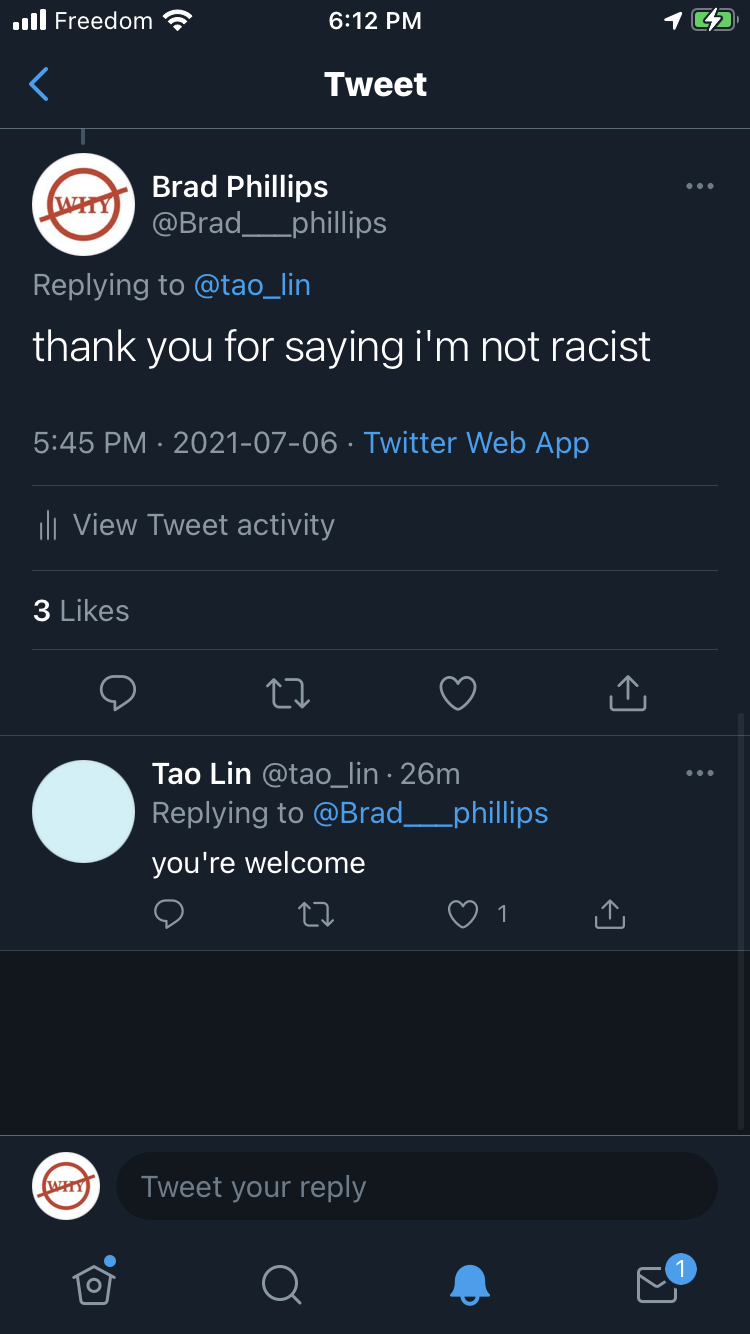
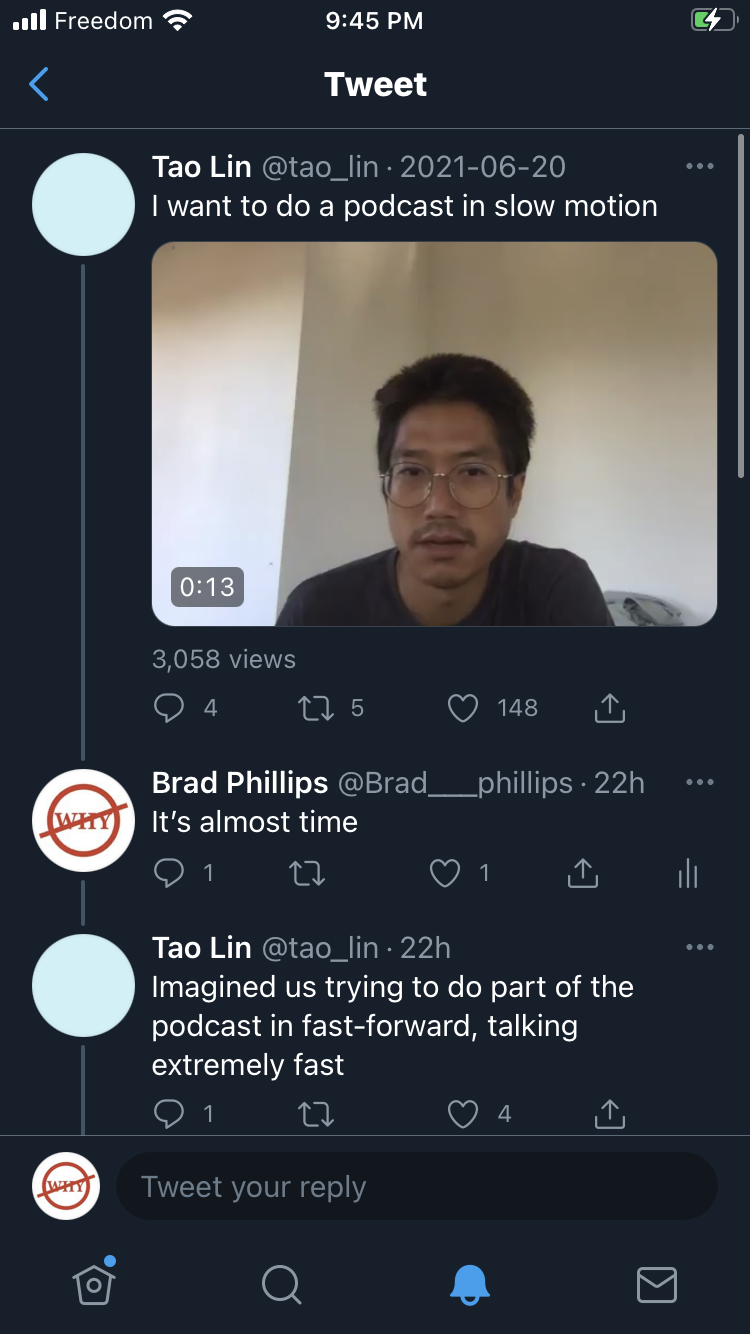
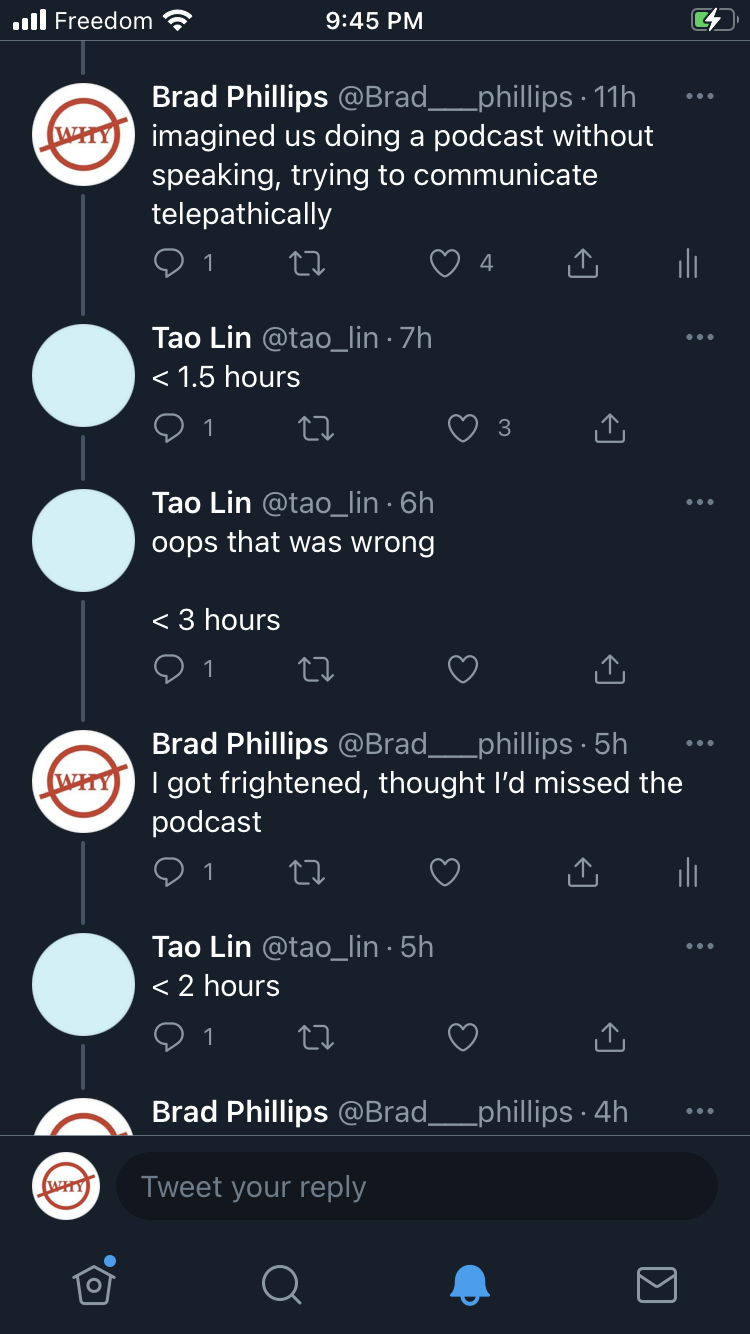
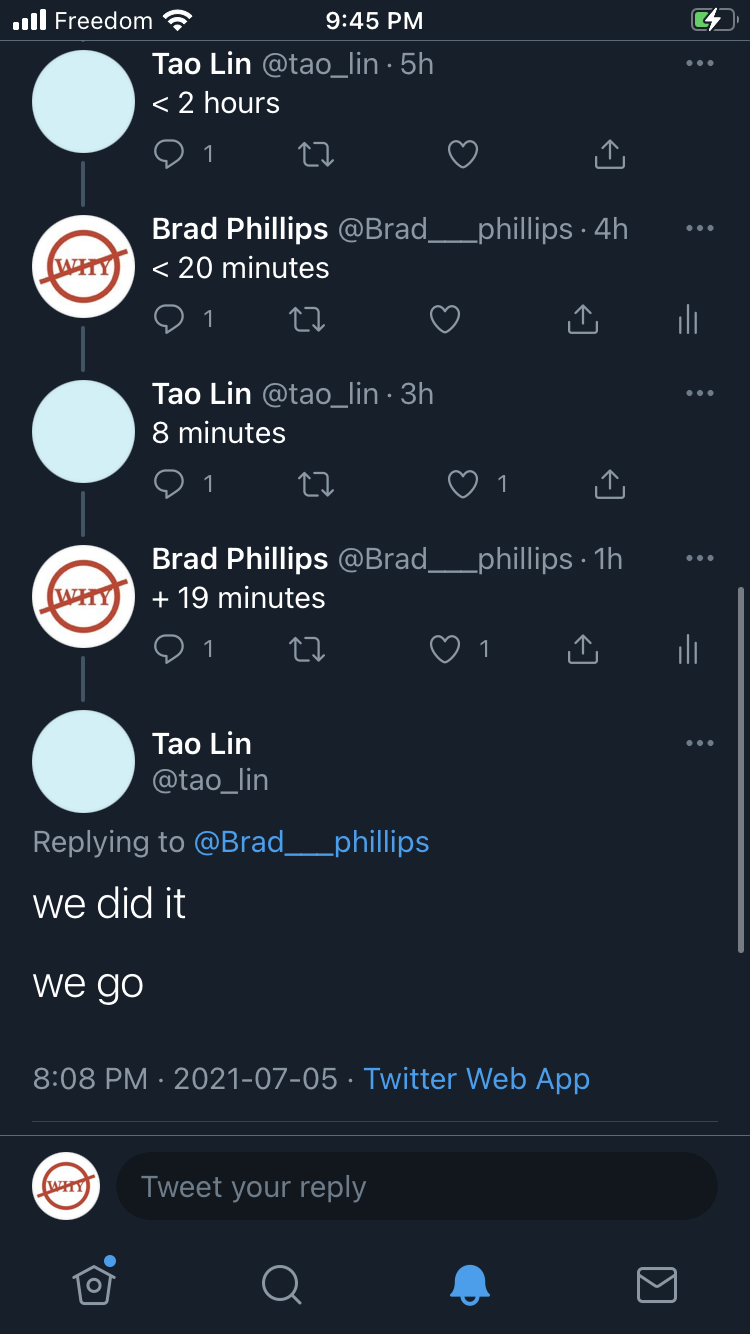
bed before you went to sleep? Or in the closet?
TAO LIN—I would be too afraid to check the closet. I would check under the bed, except I had a drawer there.
BRAD PHILLIPS—You were safe because of the drawer. But I don’t know, the intuition thing you were saying that makes you feel scared—when I lived in British Columbia, I really liked being in the forest, and sometimes I would be in there and I would just get really frightened and try to get out of the forest as soon as I could. I don’t know what it was. There has to be more than we can see or imagine, or else nothing else really makes sense. This experience of being alive is so bizarre and unusual, but our lives are so mundane; but we’re so unusual and complicated, but our lives are so boring, there must be something more complicated that justifies why we’re even here in the first place.
TAO LIN—Yeah, that’s a good point.
BRAD PHILLIPS—It’s so hot here. Is it hot there? Does it get hot there?
TAO LIN—Yeah, in the daytime in the sun, but in the shade and inside is pretty alright. Yeah, I’ve heard people talk about aliens being interdimensional, but then Stephen Greer talks about how he thinks it’s just in the same dimension, it’s just other parts of this dimension.
BRAD PHILLIPS—That makes sense, yeah.
TAO LIN—Yeah, like how we can’t detect electromagnetic waves.
BRAD PHILLIPS—Yeah.
TAO LIN—He thinks like, those waves can keep going past x-ray and gamma rays to other rays that we haven’t figured out.
BRAD PHILLIPS—I like that idea. There’s so much stuff that we can’t see, and then with the multiverse, there’s this theory that the Big Bang, isn’t a thing that happened, it’s a thing that keeps happening second by second... Eternal inflation. So, there’s like, the Big Bang and then a ripple, which creates another universe, and the Big Bang is just a constantly repeating circumstance. So, out of each iteration, a new universe is created. But once I got interested in it, eventually I needed way more math. Are you good at math? I couldn’t get past the math part.
TAO LIN—No, I’m not good at math.
BRAD PHILLIPS—Yeah, me neither.
TAO LIN—I only got up to like pre-algebra in high school. I remember thinking it was hard and that I didn’t like it.
BRAD PHILLIPS—I only got up to grade 10, prime numbers or something. Fuck it’s hot. I turned off the air conditioning for the sound quality.
TAO LIN—Thank you. But I wanted to ask you about modal realism.
BRAD PHILLIPS—Shit, I have to Google it now, because it’s been a while since I looked at the book. I don’t think I’ll remember modal realism well enough. No email.
TAO LIN—That’s weird.
BRAD PHILLIPS—I know, I feel insecure now.
TAO LIN—Maybe they did want to cancel this. If they did, we can just release it on YouTube. You seem really hot, your hair’s getting wet.
BRAD PHILLIPS—I get so hot so easily because of Suboxone, I sweat so fast. It’s really hot.
TAO LIN—I didn’t know it would be hot in Toronto.
BRAD PHILLIPS—Everyone always says that, but the weather is just kind of the same here as in New York... Same amount of snow, same amount of hot. I don’t know how to do Fahrenheit, but right now it’s 100.4 degrees.
TAO LIN—Wow.
BRAD PHILLIPS—Is that hot to you?
TAO LIN—That seems like scorching hot.
BRAD PHILLIPS—It’s extremely hot, yeah.
TAO LIN—Over a hundred.
BRAD PHILLIPS—I have an ice pack here.
TAO LIN—It just seems farther north than New York.
BRAD PHILLIPS—I think that Toronto is south of New York, maybe.
TAO LIN—Oh.
BRAD PHILLIPS—It’s confusing how it works. Who fucking cares? It’s hot here and it snows there. People have strange ideas about what it’s like in Canada. Someone once asked me if I ever lived in an igloo. How funny. Or if I see moose.
TAO LIN—You should live in an igloo, that would be really funny.
BRAD PHILLIPS—It seems relaxing in there. I would try it.
TAO LIN—Yeah.
BRAD PHILLIPS—You would. You would try it, I know.
TAO LIN—You seem kind of like, what are the people who live in igloos?
BRAD PHILLIPS—Inuit.
TAO LIN—Yeah, I’ve always thought your eyes look kind of Asian.
BRAD PHILLIPS—That’s nice.
TAO LIN—Like your eye area.
BRAD PHILLIPS—Like not my eye-eyes, but the whole thing?
TAO LIN—Yeah.
BRAD PHILLIPS—I have this thing called ptosis where my top eyelid droops down. Someone’s at my door. I have to deliver their mail.
TAO LIN—Who is that?
BRAD PHILLIPS—You have to talk.
TAO LIN—Brad just went to his door and it looks like, I can see on the wall behind him there’s some really big stain that looks like a water stain, and I can also see a place where you plug in electrical stuff, but it’s torn off.
BRAD PHILLIPS—I have, yeah. Can you see my eyelids? Do they look different than other white person’s?
TAO LIN—Yeah, it seems like you don’t have a double eyelid.
BRAD PHILLIPS—Yeah, I don’t have double eyelids.
TAO LIN—Yeah, that’s maybe what I’m noticing, because only some Asians have that.
BRAD PHILLIPS—What Asians get to have it?
TAO LIN—I think I have it. Do I? A little.
BRAD PHILLIPS—Yeah, you have a little bit. Your eyes look friendly.
TAO LIN—Yeah my eyes don’t look like, that Asian. Like they don’t get that slit-like.
BRAD PHILLIPS—I don’t know how to have this conversation, though.
TAO LIN—Yeah, you don’t have to say anything. You can just laugh at my Asian-ness.
BRAD PHILLIPS—But I told Christine, I think my friend, she has it and she had surgery because over time, I have to keep raising my brow to see properly, because the drooping eyelid starts to cover my pupils. So, eventually I have to have like an eyelid lift, which just, that seems kind of cute.
TAO LIN—Yeah, I didn’t know that it starts covering up your vision.
BRAD PHILLIPS—A little. I mean, yeah.
TAO LIN—Hmm... When my dad starts getting more overweight, he has that big time—the drooping thing—on one side. He must not be able to see that well.
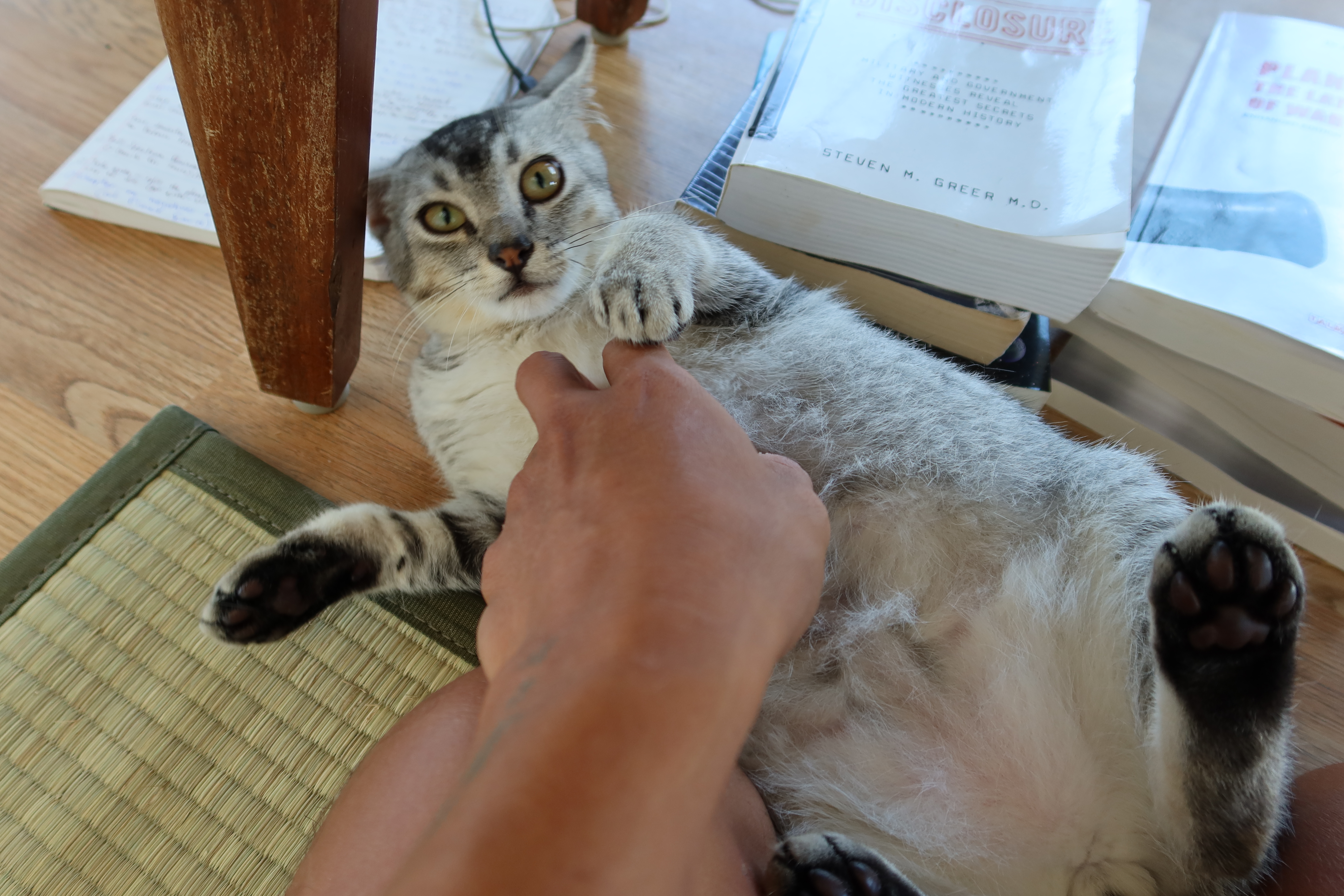
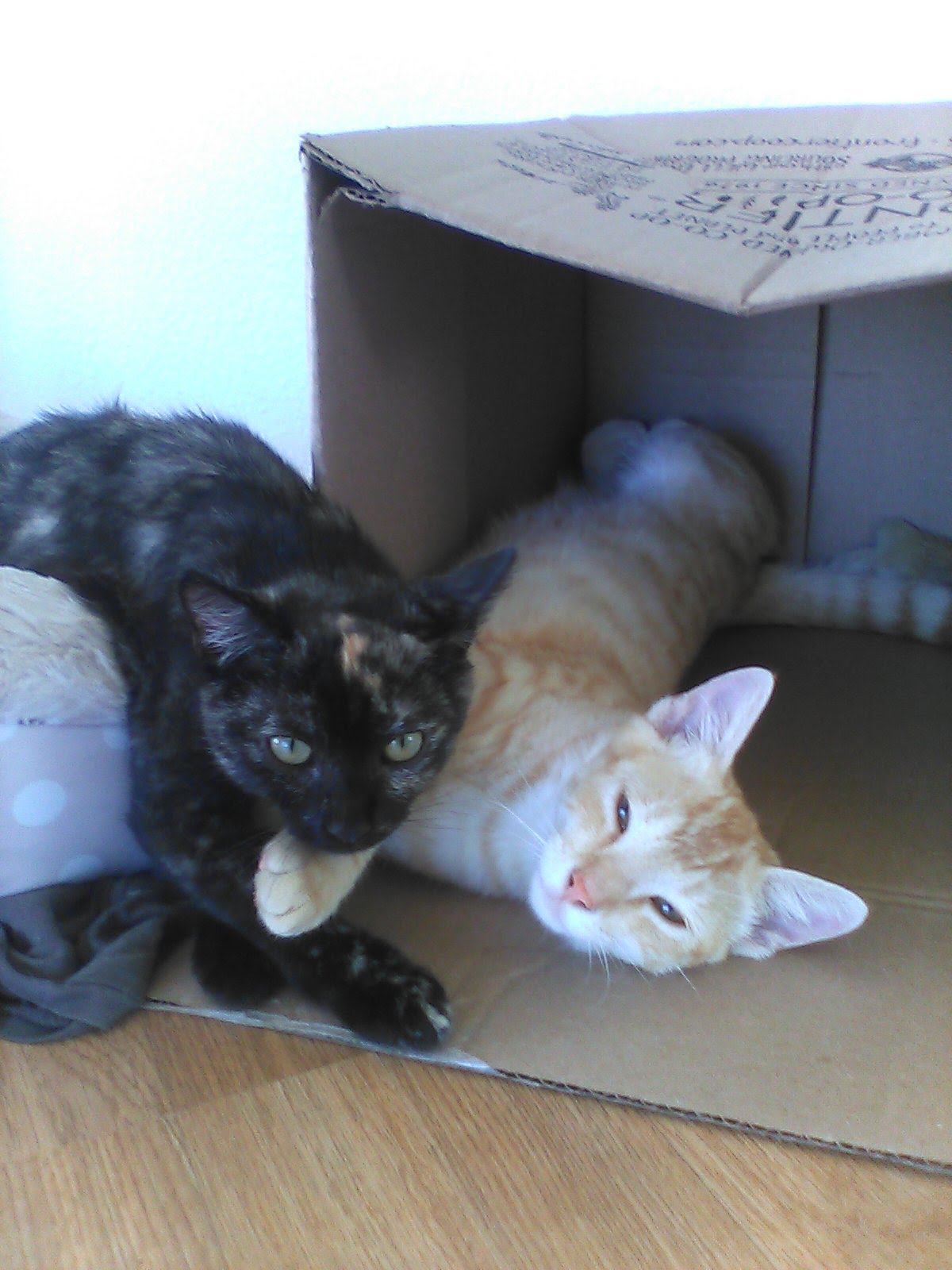
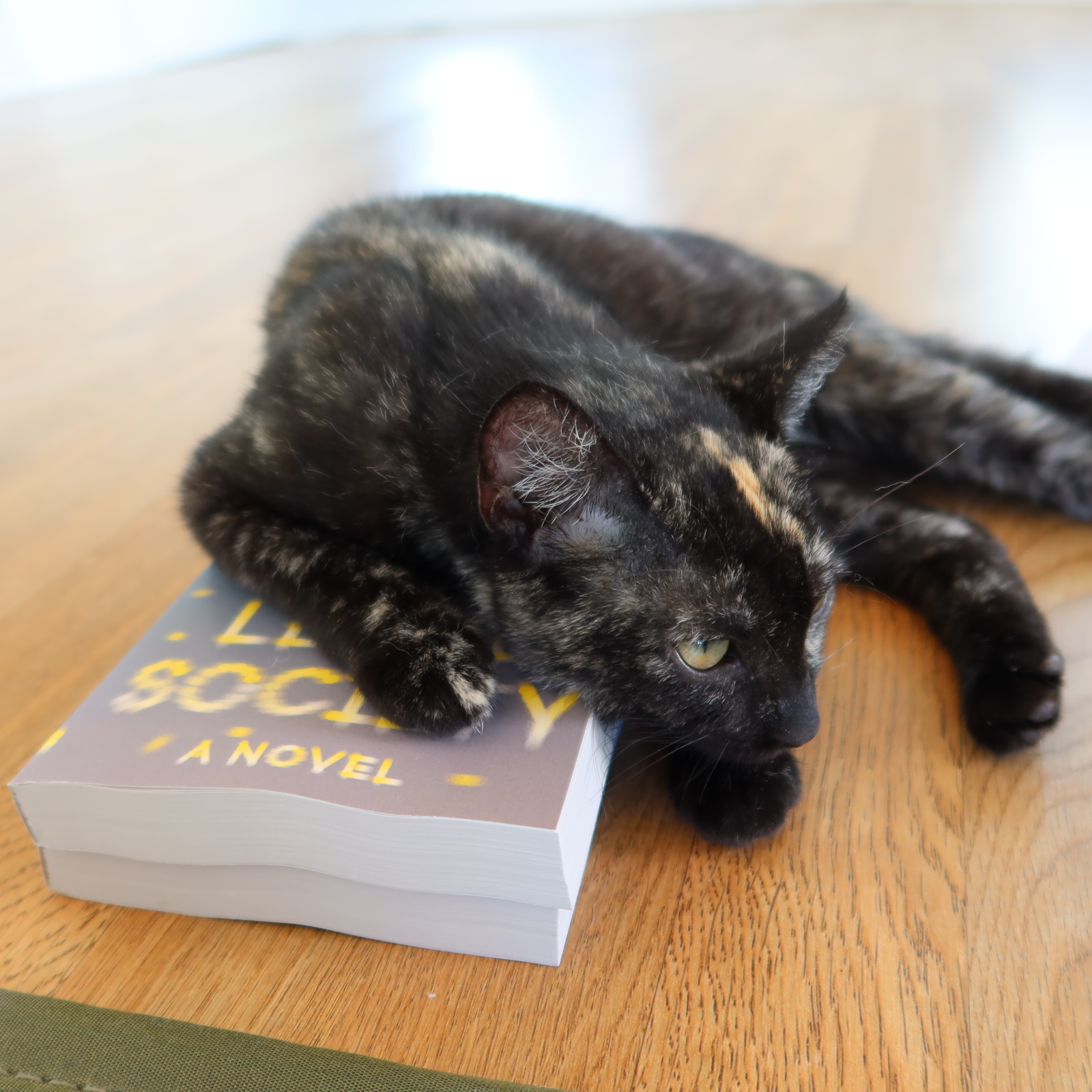

BRAD PHILLIPS—I think it’s the same idea.
TAO LIN—Who was at the door?
BRAD PHILLIPS—That was my downstairs neighbor. She was away and she asked me to get her mail. So, I got, I think it felt like a pair of shoes. She’s friendly.
TAO LIN—Nice.
BRAD PHILLIPS—She broke up with her boyfriend, so he’s gone. I didn’t like him. I don’t like when people smoke weed in a building, you have to smell it. Even if I smoked weed, I don’t like when other people are doing it and it gets into my living space. Oh, Nini is obese you said?
TAO LIN—Yeah, I’m holding a different cat, though. This is Leo.
BRAD PHILLIPS—Awww.
TAO LIN—Yeah. How’s your cat, Cherry?
BRAD PHILLIPS—She seems beautiful. How old is Nini? She looks big.
TAO LIN—This one isn’t Nini, this one’s a different one. But they’re all like five months.
BRAD PHILLIPS—Okay. She looks big for five months.
TAO LIN—Yeah. This is the biggest one.
BRAD PHILLIPS—She looks like a Bengal cat or something. She has those spots. What’s her name?
TAO LIN—Leo.
BRAD PHILLIPS—Leo?
TAO LIN—It’s a guy.
BRAD PHILLIPS—He’s beautiful. He has eyes like me. They droop a bit.
TAO LIN—Yea, my dad says he looks Chinese with the slanted eyes compared to the other cats.
BRAD PHILLIPS—How long have you had that cat?
TAO LIN—For like two months.
BRAD PHILLIPS—Where did you get these cats?
TAO LIN—We asked on Craigslist and on Facebook and a lot of people responded saying they had cats.
BRAD PHILLIPS—It seems like people always have cats to give away.
TAO LIN—Yeah, they have babies so much.
BRAD PHILLIPS—Did you get your cats like, neutered and spayed?
TAO LIN—Yeah, we got the female one spayed.
BRAD PHILLIPS—Yeah. How many are there? Three?
TAO LIN—Yeah, three.
BRAD PHILLIPS—Do you have a favorite?
TAO LIN—Sometimes it’s this one.
BRAD PHILLIPS—Yeah.
TAO LIN—Yeah, this one. Can I see your apartment?
BRAD PHILLIPS—It just looks big.
TAO LIN—Yeah, I think he’ll get really big.
BRAD PHILLIPS—Your apartment looks very, uh, clean.
TAO LIN—Yeah, I wanted to ask if I could see your apartment.
BRAD PHILLIPS—My apartment is really not like yours. There’s an armoire. I can’t see what you’re seeing. But Jesus, it’s so hot in here. We’re coming full circle.
TAO LIN—What’s that thing that says ‘six’ on the wall?
BRAD PHILLIPS—Oh, it’s an embroidery my friend Mark DeLong made. It’s really good. He’s really good. When I smoke DMT in this room, that’s the thing that really is interesting to look at after. It’s good, I’m glad everyone doesn’t talk about DMT anymore and everyone thinks it’s stupid.
TAO LIN—They do. Yeah, I haven’t heard that many people talking about it.
BRAD PHILLIPS—No, it’s like bath salts now, it’s over. It’s over.
TAO LIN—Yeah, now it’s aliens.
BRAD PHILLIPS—Aliens are the new DMT.
TAO LIN—An alien should smoke DMT though.
BRAD PHILLIPS—They would see us!
TAO LIN—Yeah.
BRAD PHILLIPS—Do you sweat? Why aren’t you even—I guess it’s not hot where you are.
TAO LIN—Yeah, it’s just not hot right now.
BRAD PHILLIPS—Cool, well I’m going to have to go soon.
TAO LIN—Yeah, it’s been more than an hour.
BRAD PHILLIPS—My therapist just wrote me to say that she didn’t get the transfer because I talked to you right after therapy and she thinks I always am not going to pay her. She gets always so worried. She texts me five minutes after a session, ‘Did you send the e-transfer?’ It makes me think she’s in it for the money. I hope that I didn’t talk too much during this podcast or interrupt you.
TAO LIN—No, I feel like I interrupted you a lot by accident. I just don’t know, I just started talking because I have so little experience with social interactions.
BRAD PHILLIPS—Nobody knows how to do this. No one knows. It’s okay.
TAO LIN—Thank you. I feel like—
BRAD PHILLIPS—You’re doing really good.
TAO LIN—Yeah, it’s harder through this. There’s a slight lag.
BRAD PHILLIPS—There is. But you’re very polite about interrupting, because some people who interrupt, they don’t care. They just keep going and going. But you say sorry, and you try not to do it. That’s important.
TAO LIN—Yeah, I feel bad when someone will interrupt and then they won’t ask what I was talking about, then I just stop talking usually.
BRAD PHILLIPS—I like when people say, ‘Go ahead.’ I liked that about Giancarlo. If he interrupted me, he would always say, ‘Go ahead, finish what you were saying.’
TAO LIN—Nice.
BRAD PHILLIPS—It’s nice and polite.
TAO LIN—How do you know when to go ahead and when to let him go, though?
BRAD PHILLIPS—It’s a mystery. Intuition.
TAO LIN—My intuition is just to try to have it be even.
BRAD PHILLIPS—This was not even, I talked more than you.
TAO LIN—Really? I can’t tell. I feel like I talked a good deal though. Seems pretty—
BRAD PHILLIPS—You talked, you did good talking. Your talking was good and helpful and interesting.
TAO LIN—Yeah, I’m glad we covered all these topics.
BRAD PHILLIPS—Thank you for remembering all the topics and you brought them up in order.
TAO LIN—Yeah, I had a paper I printed out and I wrote some stuff on it.
BRAD PHILLIPS—That’s nice. Can you send me a photograph of that paper?
TAO LIN—Yeah.
BRAD PHILLIPS—I guess I actually have to go now to pay my therapist and I have to talk to my sponsor at eight.
TAO LIN—Yeah, that’s good.
BRAD PHILLIPS—Sorry.
TAO LIN—No, I enjoyed talking.
BRAD PHILLIPS—Well, who knows what will happen with it?
TAO LIN—Yeah. Did you record?
BRAD PHILLIPS—No, I couldn’t do it. Oh, wait! It says recording on the top left corner. I’ll write you tomorrow once I see what’s happened, look it over tonight. Does that work?
TAO LIN—Yeah, yeah.
BRAD PHILLIPS—Okay.
TAO LIN—Alright.
BRAD PHILLIPS—I’ll talk to you again.
TAO LIN—Yeah, I hope you have a good night.
BRAD PHILLIPS—Thank you. You look friendly. It was nice. I’m so hot, though. I just, this woman’s irritating me about the money! Okay. I’ll write you tomorrow.
TAO LIN—Alright, bye.



